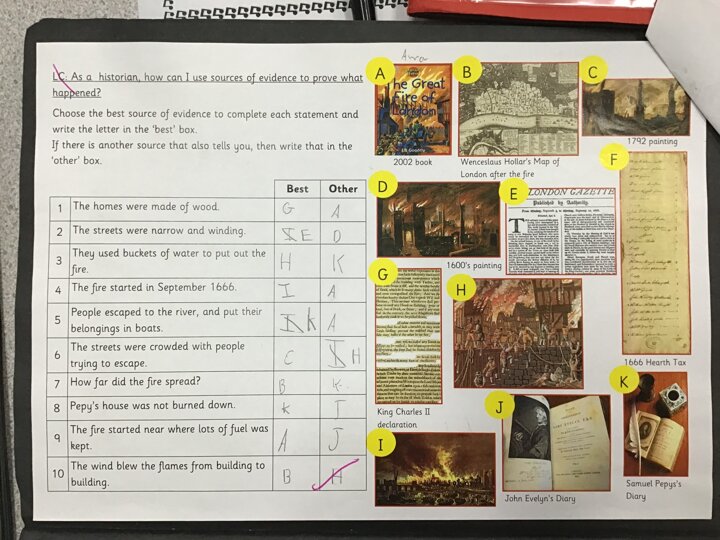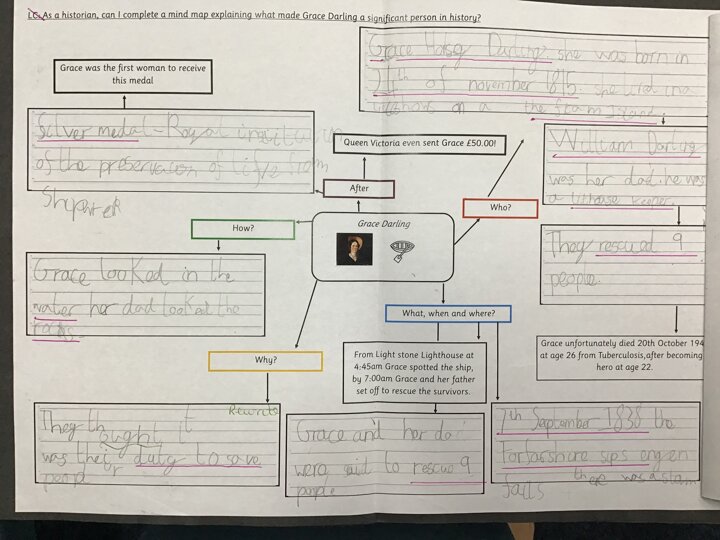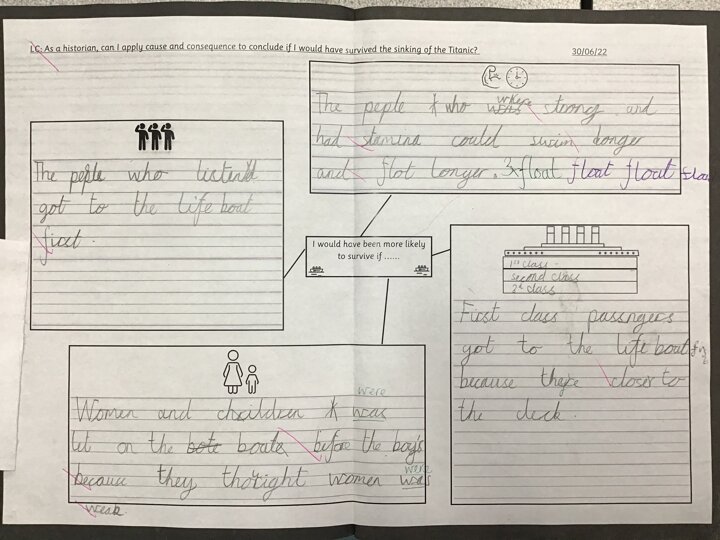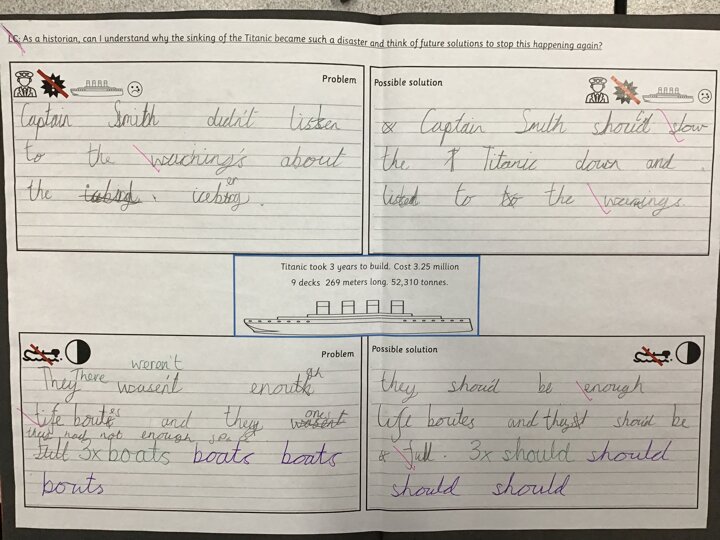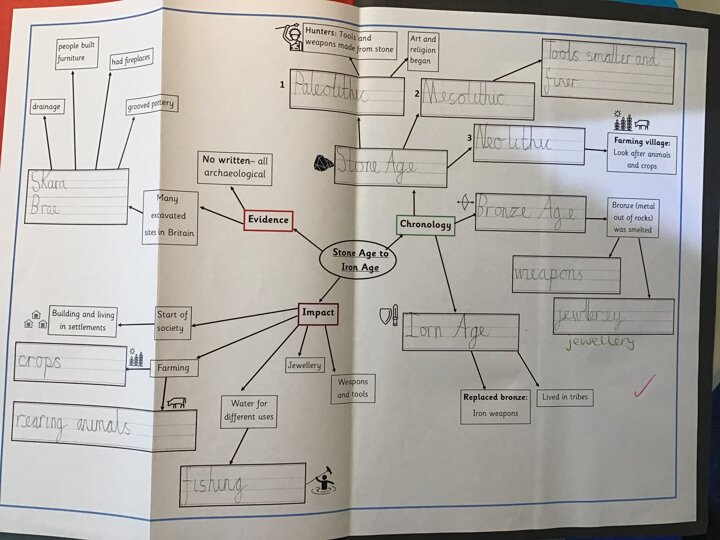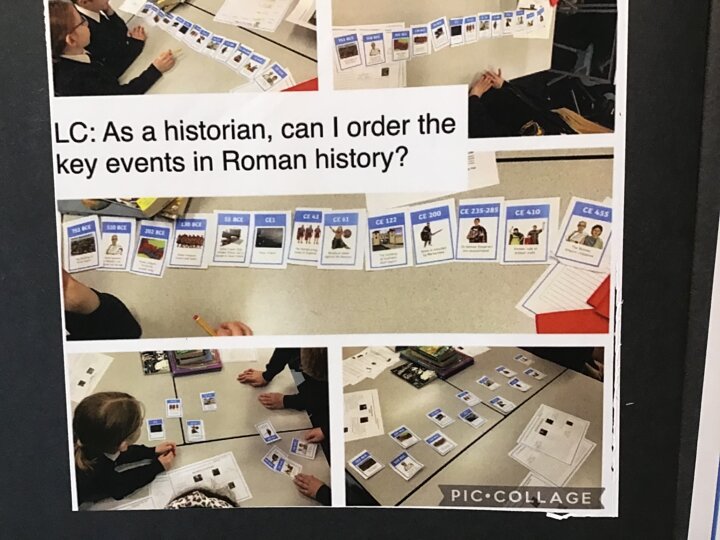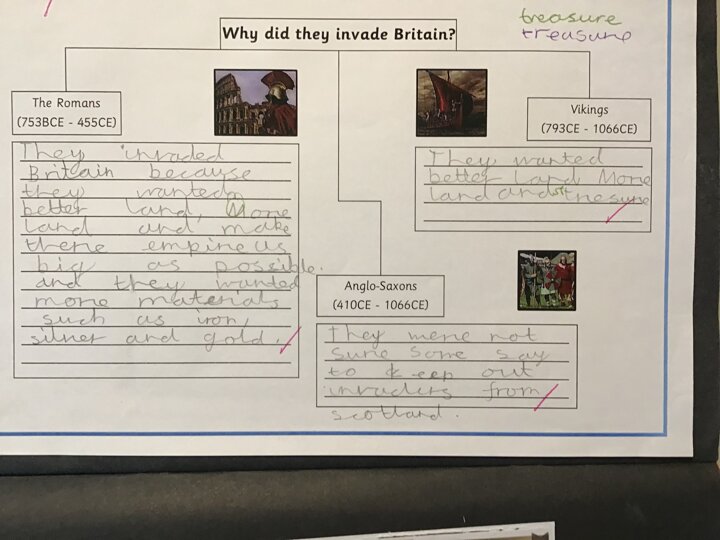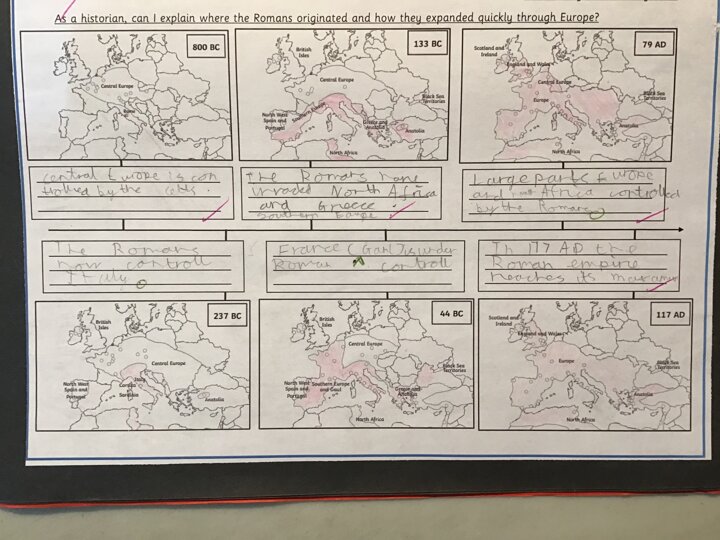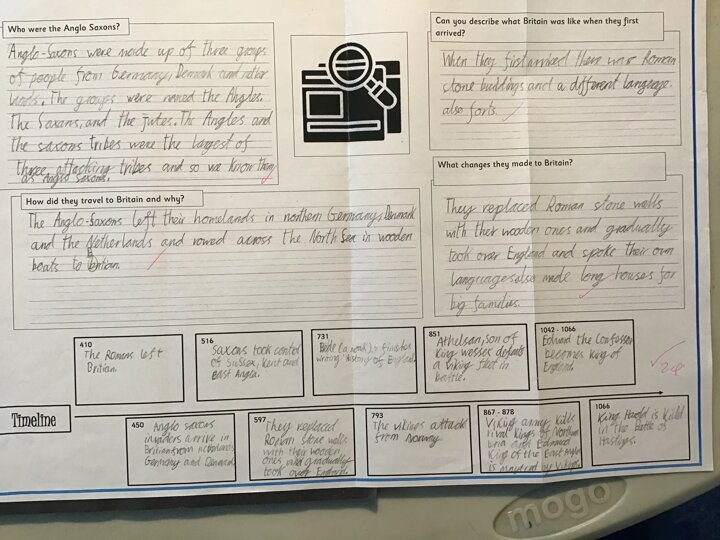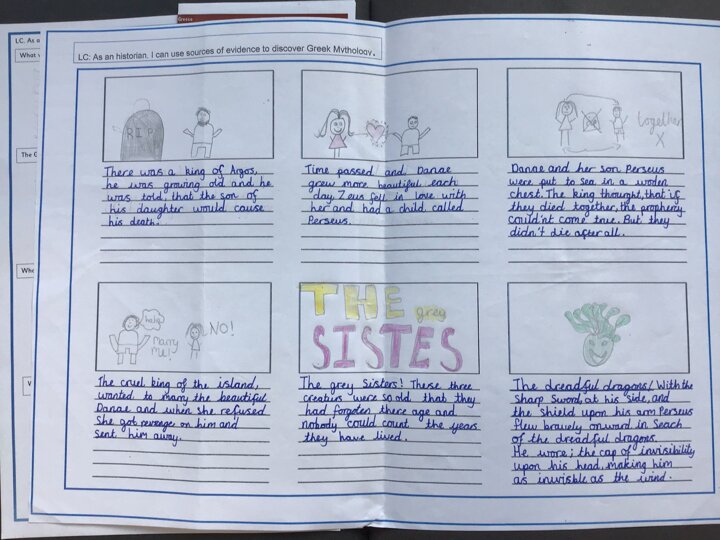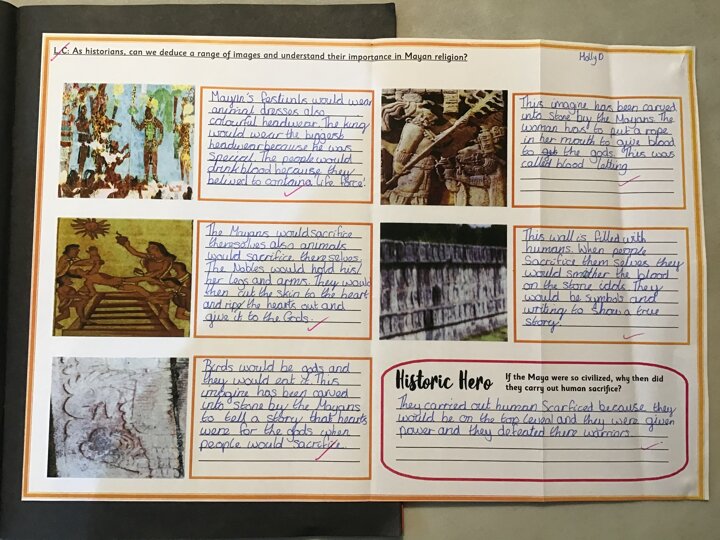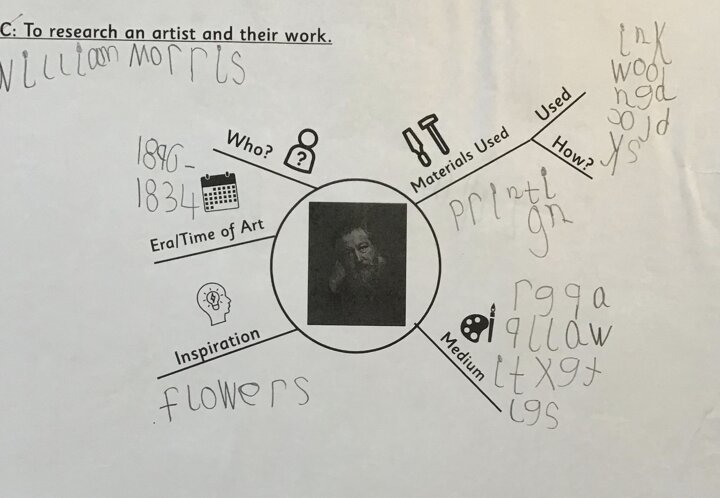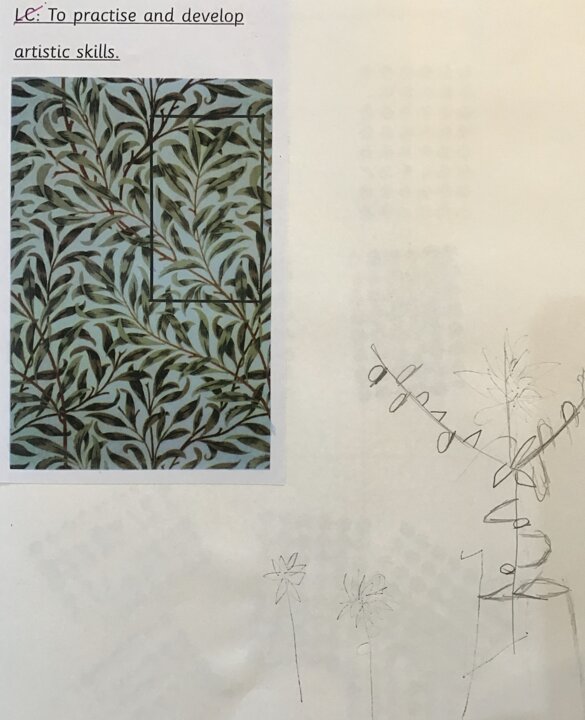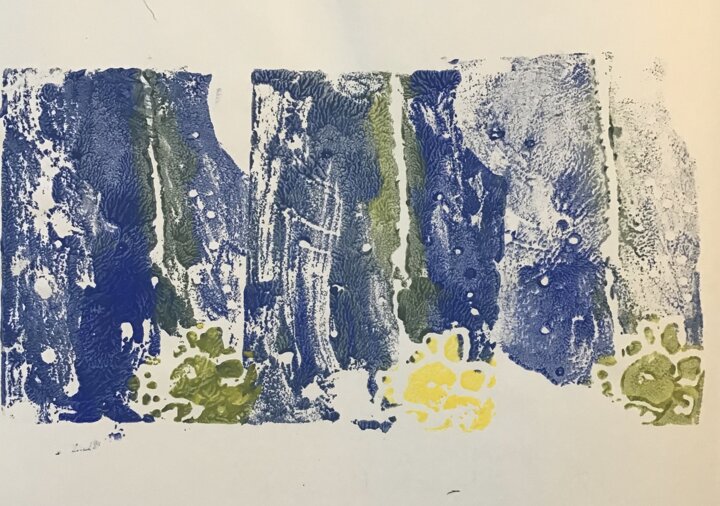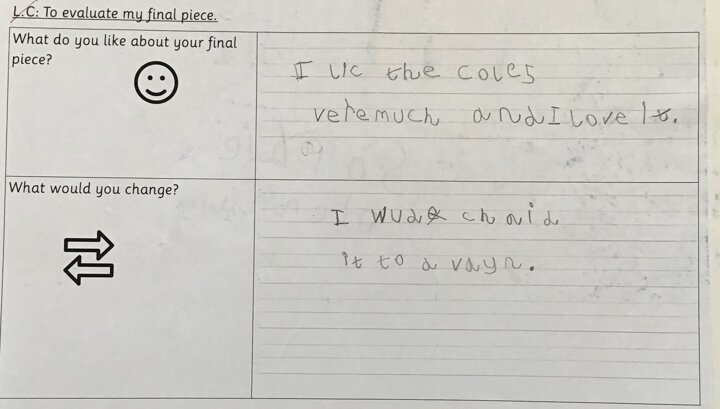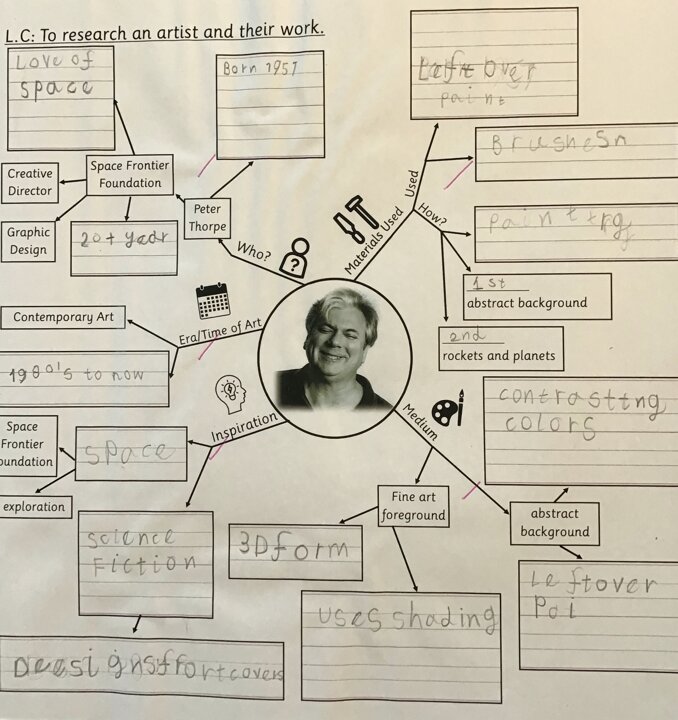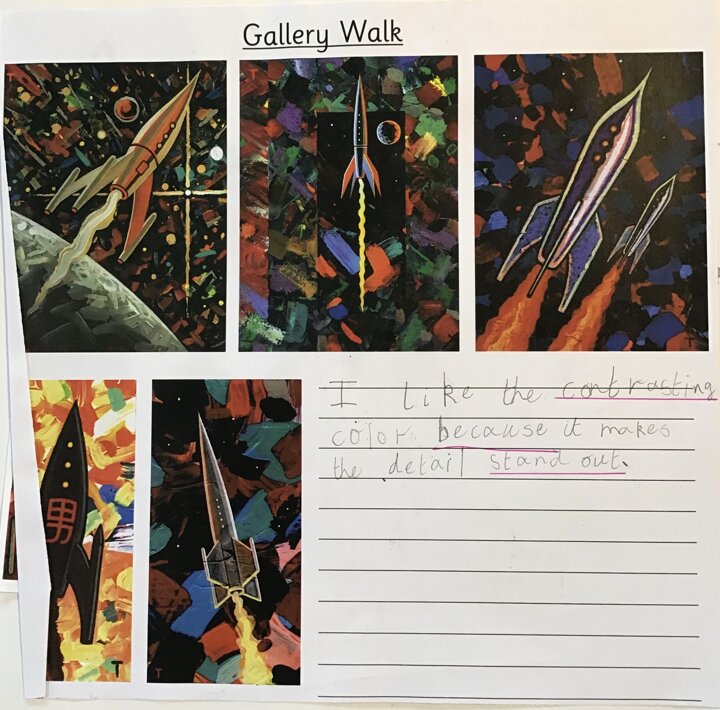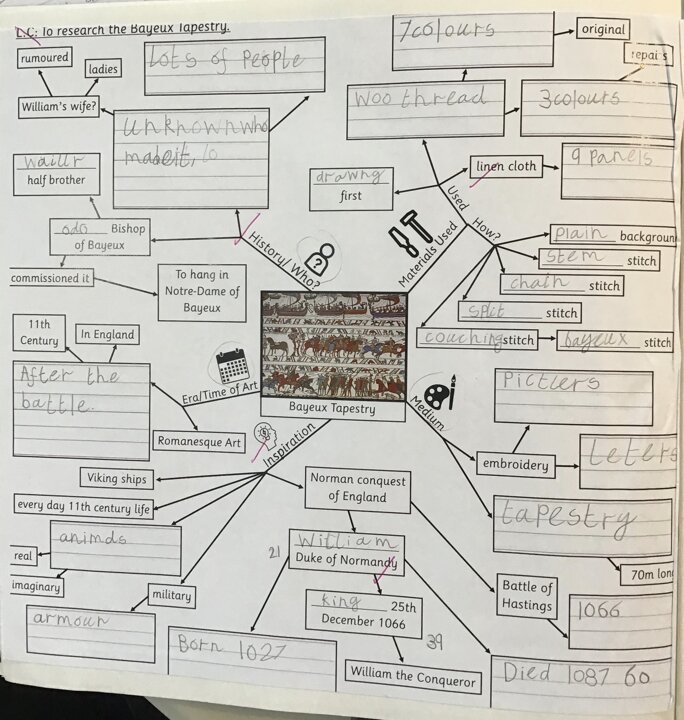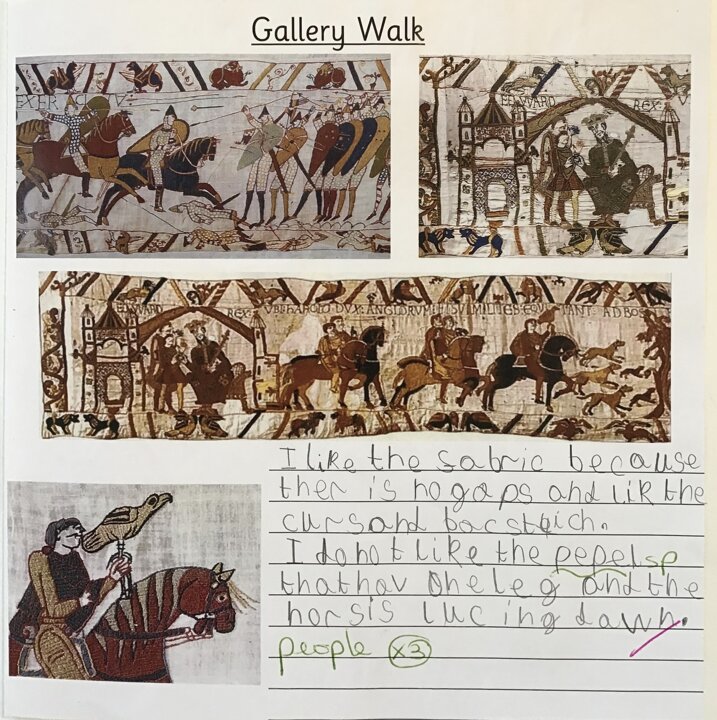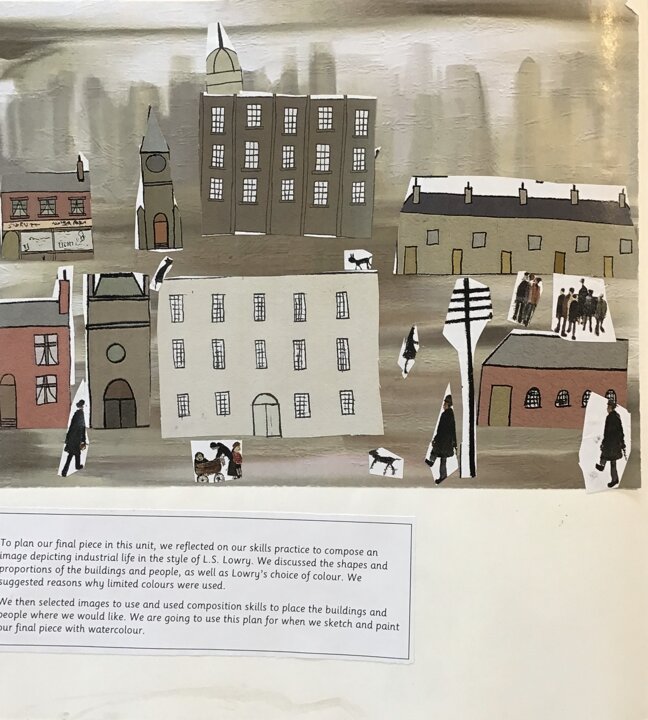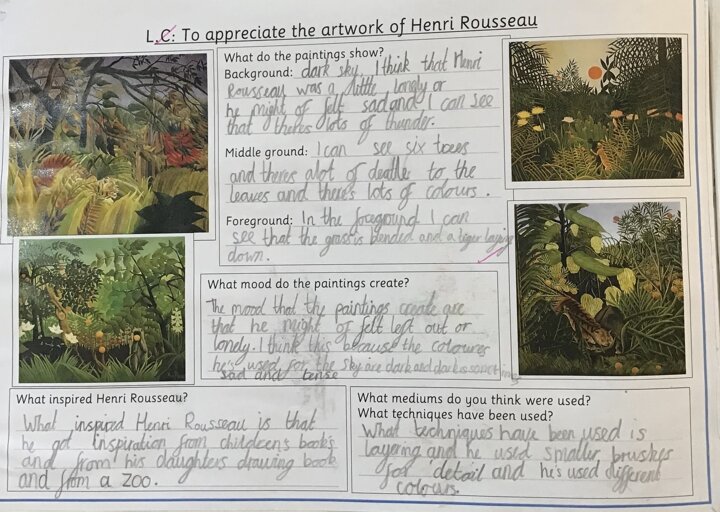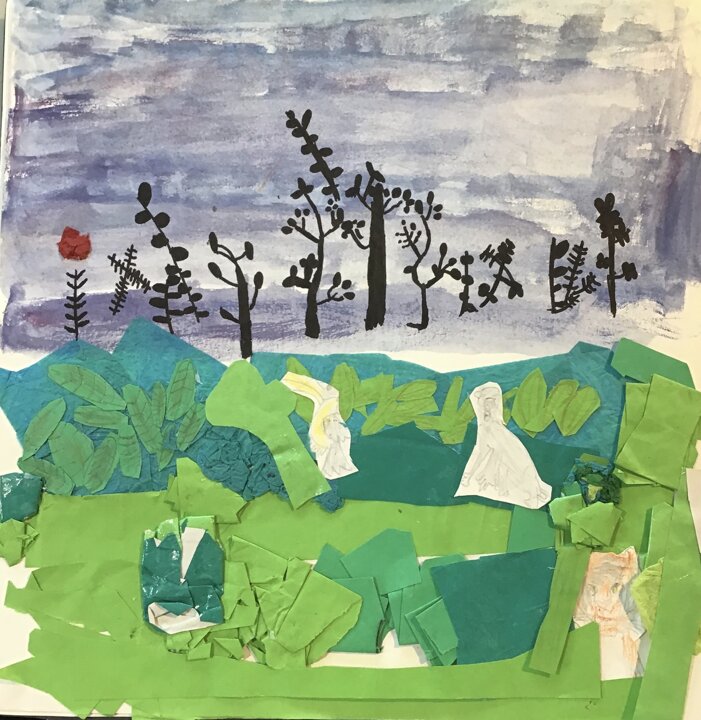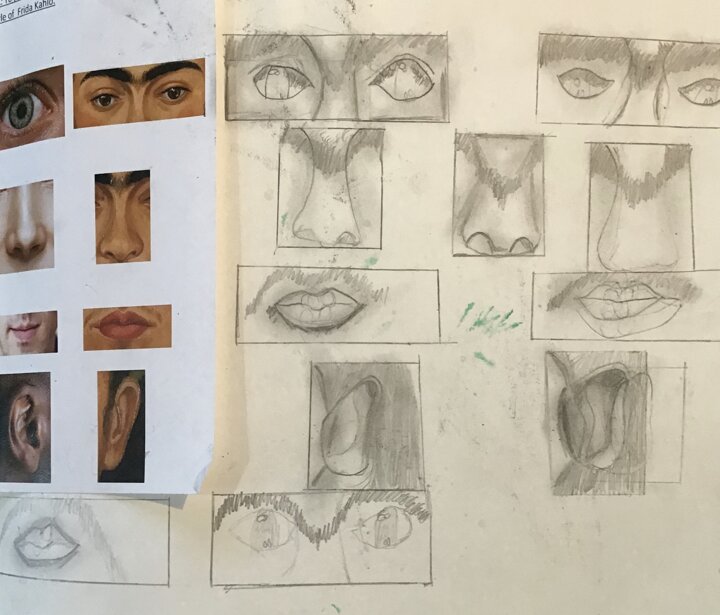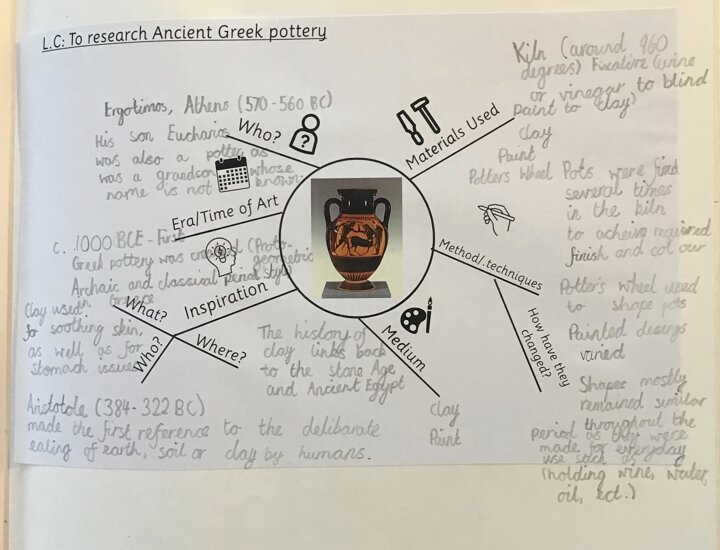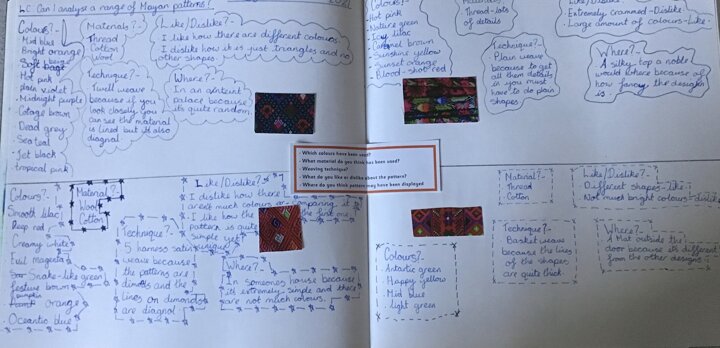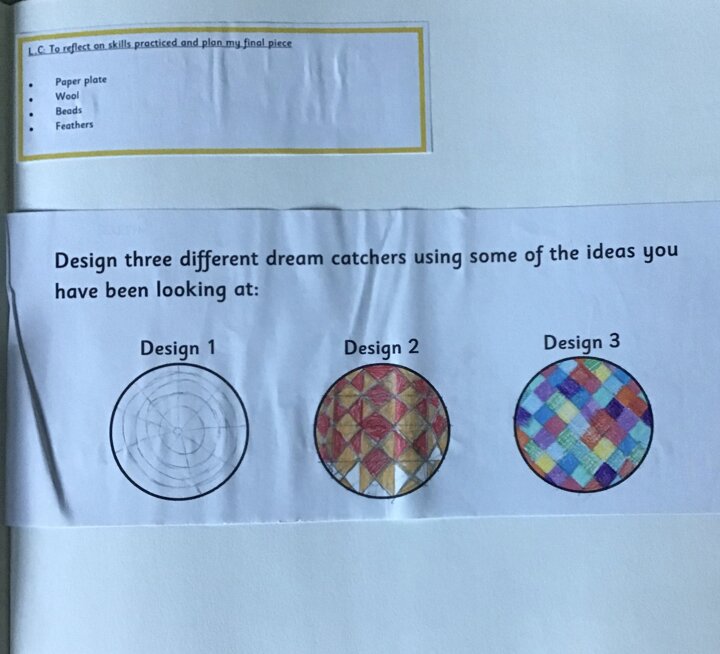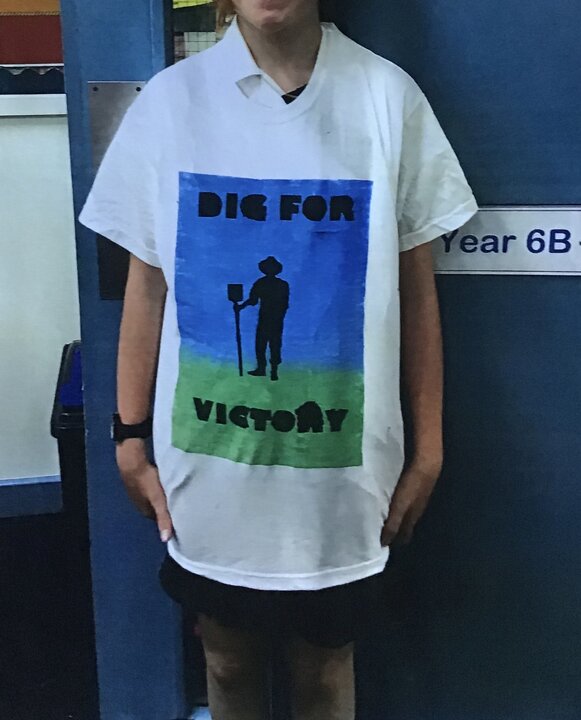Our Curriculum
The curriculum at Manchester Road is rich and varied. We pride ourselves on a curriculum which is designed to give children the very best knowledge and skills available.
The curriculum considers the children's locality and context, whilst also ensuring they develop an interest and understanding of the wider world.
Our curriculum follows a sequence of lessons which are built upon across years, throughout each year and across subjects. To ensure the children have the correct knowledge and skills, the staff use a series of knowledge organisers which have been written and adapted by the staff in school. The knowledge organisers pick out the key areas for children to study, and allow the teachers to deliver learning effectively. These can be found on each of our subject pages along with our key concept maps, which lay out the skills progression from Early Years to Y6.
To ensure the children get the very best from our curriculum, the school staff engage in training which is up to date, and which teaches about how children learn and remember best. Our classrooms are places where the children are presented with information in a way that makes it easier to remember, and which encourages them to make links between what they have learnt and what they will be learning in the future.
At Manchester Road we take pride in community and it's diversity. Our curriculum considers our statutory duties under the equality act 2010 and the special needs and disability regulations 2014. When planning the curriculum there has been much consideration and thought put in to how we can ensure access to all, and that the curriculum feels relevant and important to all members of our community.
Our subject curriculum pages have lots more information about what we teach across school and some examples of the children's learning.
If you would like any more information about our curriculum, please contact Joanne Taylor or Vicky Leah using the school addresses.
Our Curriculum
Intent
We have designed our Reading curriculum so that our learners:
-
Develop a life-long enjoyment in reading for pleasure
-
Are exposed to high quality texts from a range of authors, genres and books on different topics and interests
-
Develop the necessary skills and strategies to become fluent and competent and expressional readers, becoming increasingly more confident and independent
-
Develop their comprehension skills so that they understand what is read to them
-
Read for meaning, enabling them to respond to texts and justify their answers
-
Develop their ability to retell a story or events in order, predicting what might happen next and inferring how someone feels or why something might have happened
-
Appreciate the work of different authors, poets and illustrators from a range of different cultures
-
Are exposed a wider variety of language, including story language, to develop both their oral and written skills and abilities
Implementation
Reading in EY and KS1
-
The systematic teaching of phonics has a high priority throughout Foundation Stage and Key Stage 1. Phonics is taught, using the Read, Write, Inc. programme, daily to all children in Foundation Stage, Year 1 and those in Year 2 who have not passed phonics screening in Year 1.
-
All EYFS and KS1 staff (teachers, TAs and HLTAs) have been trained to teach and plan these sessions. Staff systematically teach learners the relationship between sounds and the written spelling patterns, or graphemes, which represent them.
-
Phonics is delivered in ability-group as this enables staff to ensure application across subjects, embedding the process in a rich literacy environment for early readers.
-
Timely intervention is planned for those children who are working below expected levels as soon as needs are identified. (1:1 Phonics tutoring)
-
In EYFS and KS1, annual Reading and Phonics workshops to support parental knowledge and understanding.
-
Once children are confidently reading and have finished the Read, Write, Inc. phonics programme, they move on to guided reading. This generally happens when pupils are in Year 2.
-
In Reception and KS1 children are assessed using the Read, Write, Inc entry assessment and follow the reading books which is matched to the phonics teaching they receive.
-
The RWI lead and class teacher has the responsibility to ensure progression and challenge in the reading materials selected for all children.
-
All teachers analyse the outcomes of Read Write Inc. to identify which reading domains children need to be targeted with and to inform future Guided Reading planning. Class texts are carefully selected with the knowledge of how they link to other areas of the curriculum.
-
From year 2, teachers use Guided Reading to introduce pupils to a range of genres and to teach a range of techniques which enable children to comprehend the meaning of what they read. We use reading domains to ensure Guided Reading sessions cover all question types.
-
Any children not making the expected progress have 1:1 or small group intervention using bespoke reading intervention or Fisher Family Trust (FFT).
Reading in KS2
Reading in KS2 follows a four lesson cycle, which is delivered over a period of two weeks:
Day 1: The children are given an image and/or a quote from the text and make predictions about the type of text they think it is and what they think it will be about from the clues given. They will be asked to clarify given vocabulary that will appear in the text, looking at the origin, meaning, word class and synonyms.
Day 2: The teacher discusses the text with the children and recap on the vocabulary used. The children are encouraged to skim and scan the text to answer retrieval questions.
Day 3: The children use their inference and deduction skills to answer questions using APE (Answer Prove Explain) to help them organise their reasoning.
Day 4: The children are given the opportunity to apply the skills they have learnt over the reading cycle, working independently to answer a range of questions. These will be marked by the teacher and the children will be given the opportunity to read, reflect and respond to the feedback.
|
Layer 1 |
Layer 2 |
Layer 3 |
Application |
|
Predict and Clarify |
Retrieve |
Infer, Deduce and Reason |
Read, Reflect, Respond to previous days answers |
|
Prediction stimulus Model and Mirror |
Recap Vocabulary |
Summarise main events |
Mark and monitor |
|
Clarify word knowledge and word choice (authorial intent) Model and mirror 1 example |
Retrieve Specific Information- Skim and Scan |
Deductive, reasoning and Inference questions Model and mirror using A.P.E Answer Prove Explain |
Independent
Skills
Check |
-
Through bench marking, the children are given books to take home at a level that they will confident with and enjoy reading with fluency.
-
Children’s book bands are tracked over the year. Any children not making expected progress will be placed on a reading intervention programme.
Reading Interventions
-
For those children who are not achieving the expected standard, we have reading interventions; including Fisher Family Trust (FFT), Reading Eggs, bespoke small group reading.
Reading Enrichment
-
To improve children’s fluency of reading, children in KS2 have their own platform on the Reading Plus application. Reading Plus not only assesses efficiency, but also measures and increases motivation and comprehension. Students are given choice and control to practice at their own pace with a program that uses adaptive technology in a meaningful way.
-
At Manchester Road, we make a ‘Book Promise’ to each year group, where the class teacher will promise to read a set selection of high quality texts to them throughout the year.
-
KS2 reading buddies are paired up with children in KS1 and EY and will listen to them read, positively encouraging and supporting them.
-
In the summer term, children from the local high school visit to support children in year 5 read.
-
We have links with the local library where we arrange for children to visit throughout the year.
-
Reader of the week award celebrates those children who are making progress, reading at home or displaying
Impact
-
As a result of high quality phonics provision, children make at least good progress from their starting point.
-
Children across the school are achieving age related expectations for Reading inline and above the national average.
-
Disadvantaged pupils make good progress and are achieving inline and above non-disadvantaged children.
-
Termly reports show that Reading Plus has improved children’s efficiency, not only in fluency but their comprehension ability.
-
Gaps in knowledge are identified and groups of children (including vulnerable and disadvantaged) receive intervention.
-
Planning is adapted and shaped to ensure good progress is made for more children.
-
Many children make accelerated progress from baseline below ARE to meeting expectations in phonics, reading by Y6.
-
We firmly believe that reading is the key to all learning and so the impact of our phonics and reading curriculum goes beyond the results of the statutory assessments and can be seen in success across the curriculum as children progress through school.
-
Children are able to answer a range of comprehension questions with confidence and can use evidence from their text to support their thinking.
-
All children will be able to read with accuracy, speed, confidence, fluency and understanding,
-
Ready to access high school.
-
Pupils will develop a life-long enjoyment of reading books.
Intent
Manchester Road Primary believe that writing is a key skill for life both inside and out of education and that is why it features across all the subjects taught across our school. Our aim is to provide children with key transferrable writing skills to build on year on year, that can be used throughout each phase of their education and prepare them for secondary school.
We aim to provide the children with varied reasons for writing and believe that this not only produces higher quality writing, but allows our learners to apply their skills to a range of different contexts. Writing across all subject areas will prepare our children for high school and the more in-depth approach to analysing, planning and innovating their writing.
As a school we have adopted the guiding principles of ‘The Write Stuff’ fused together with ‘The Power of Reading’:
- All teaching and learning, in English, to be centred around one high quality text. This allows the children to enjoy reading and be fully immersed into a text.
- Teaching sequences that slide between experience days and sentence stacking lessons, which are broken into bite-sized chunks that have modelling at the heart of them.
- Sentences are taught under the structural framework of The Writing Rainbow and teachers prepare children for writing by modelling for the ideas, grammar or techniques of writing.
Implementation
Writing in Early Years
- Early reading and writing are the foundations of the curriculum within EYFS. Children engage with daily phonics program in the form of Read Write Inc. where the children learn all the different phonemes and the corresponding graphemes. Freddie Frog leads the way with his introduction of sounds and how to blend these. The children continue to engage with phonic activities within continuous provision so that they can extend and consolidate their learning through a range of carefully planned games and activities.
- The children enter Early Years as emerging writing and we encourage all types of mark making. Children will learn text directionality, letter formation and how to form words and then sentences. All of the children’s marks are valued from circles and lines to sentences.
- We encourage children to ascribe meanings to the marks they make and them explaining their work is an essential part of the learning. Staff capture this through observations (Tapestry) and notation on their work. Markings made within continuous provision are displayed on our writing wall. Adults use these opportunities as assessments for learning and targets will be displayed on the next steps board and in their whole class learning opportunities.
- EYFS staff devise continuous provision activities that enabled children to meet their next steps for writing through continuous provision based play. Next steps are well targeted, prompt and progress is therefore rapid.
- The children engage in The Write Stuff writing program daily. This follows a text rich and immersive approach and much of our continuous provision and wider learning opportunities will be theme based around our central text. This allows for a focus on oracy and rich vocabulary. The program is broken down into two days of teaching-day 1 speaking, exposure to new, challenging vocabulary through ‘Granny’s fantastic vocabulary basket’ and experimentation with this new language in carefully planned learning activities, heavily focused on oracy. Day 2 is our writing or mark making day. Where the children will be encourage to draw or write in relation to the text and enrichments that they have engaged with and experienced during day 1 of the program.
- Children have dedicated experience days which help them to further practise new vocabulary and build links and memories to consolidate it. Above all, these opportunities create a fun, enjoyment of the curriculum which is central to our approach to reading, writing and phonics at Manchester Road.
- At Manchester Road, our learning is an exciting journey and along the way the children will experience a range of fun and text rich planned play opportunities. Before children can begin to form letters, we recognise the importance of building fine and gross motor co-ordination, muscle strength and stamina. We support the children with this through a variety of carefully planned and targeted sessions. These Children will engage with ‘squiggle’, dough disco, finger gym activities within continuous provision and gross motor co-ordination activities outdoor. They will also receive targeted focus group teaching of handwriting.
- The school has a handwriting program that the children begin in early years. Consisting of a full range of handwriting patters which are fun sayings and mnemonics to aid retrieval. The more children practise forming letters correctly, the more these will become part of muscle memory.
Writing in KS1 and KS2
In Key stage 1 and Key stage 2, writing is taught through the concepts of The Write Stuff and The Power of Reading where writing units will consist of:
• Experience lessons – where pupils gather ideas, or stimulus for writing
• Sentence stacking lessons, made up of three learning ‘chunks’:
- Initiate: teacher shares a stimulus e.g. Film clip picture, drama; word gathering and discussion; ‘chotting’ – pupils chat and jot words they want to use in their exercise books/whiteboards
- Modelling: the teacher does demonstration writing, explicitly explaining choices of words etc, using 2-3 lenses from the Writing Rainbow, modelling thesaurus thinking – to write three sentences, using vocabulary gathered in the initiate stage
- Enable: Being clear about the sentence idea, the children are then asked to write their sentences sticking to the clear criteria. The children have their ‘chottings’ to support their word choices.
- For every sentence written: children need to think about the IDEA of writing and the INTENT – e.g. positive or negative – that will affect word choice
- Each sentence stacking lesson is based around another ‘plot point’ for narrative, or part of the ‘shape’ for non-fiction genres
• Pupils then plan, write and edit an independent piece where success criteria are shared, and they have the chance to demonstrate the skills and knowledge about sentences and genre they have learnt.
• Editing: During the Independent Write it is crucial that children’s errors or amendments are highlighted directly but in a way that expects the children to use their knowledge and understanding to address.
The Writing Rainbow

Thesaurus Thinking:
• The teacher models thinking about alternatives to vocab choices which have positive or negative intent, using a shade o-meter – teaches pupils about specific words and enhances vocab knowledge
- Children have opportunities to write for a range of purposes and audiences across the curriculum subjects.
- Genre coverage is mapped across the school to ensure progression.
Impact
- Children become more confident writers and enjoy writing for different purposes.
- Improvements in the quality of sentence structure.
- Pupils understand how to apply sentence scaffolds to their independent writing.
- Standards improve because many worked examples are provided over the year that deliver on listed aspects.
- Children have a clear view of what high quality writing looks like.
- Pupils know how to improve their writing and make it more focussed.
- Children have a concept of how to complete a piece of writing due to narrative maps and non-fiction shapes.
- Step sentences ensure that they have a wealth of ideas for cohesion.
- Children to have a deeper understanding of the variety of texts, author’s language, the impact of illustrations and opens the discussion of life experiences.
- Children become lifelong writers and story tellers.
- Children are able to express their ideas, feelings and understanding through writing.
- Children are able to write confidently for a variety of different purposes across the curriculum and will continue to increase in resilience and independence when writing.
- Children have a key understanding of different genres and their features.
- All children will make progress in their writing regardless of their starting point including children with SEND who will develop their skills and knowledge of writing to prepare them for the next stage of their education.
Intent
- Children are able to recognise and read all 44 phonemes and know some alternative graphemes for these phonemes. They can blend them to read unknown words.
- Children read with increasing fluency.
- Children can read by sight many common exceptions words
- Children develop their comprehension skills so they are able to answer retrieval questions, make interferences and begin to make sensible predictions based on what they have read so far.
- Children will be able to spell quickly and confidently, drawing on their knowledge of letters and sounds.
- Children will be able to write fluently with legible handwriting.
- Teachers use assessment effectively and precisely in order to plan for next steps and to identify and support children who may fall behind
Implementation
Reading
- Phonics is the number one strategy to use when reading an unfamiliar text.
- Daily RWI sessions in Nursery, Reception and YR 1. RWI sessions for children in YR 2 if required. These sessions to include a 10 min speed sound lesson where children are taught the individual phoneme/grapheme, representations.
- Children practise reading texts with taught phoneme/grapheme representations during the reading session of the lesson
- Children read their current RWI story book daily; 5 times a week.
- Phonetically decodable books to be sent home which match their current RWI level. Dandelion books sent home for additional practise of specific phonemes.
- Children are taught how to use punctuation accurately when reading to aid with fluency.
- For each RWI book the children in EY and YR 1 read teacher will ask, teach children to answer and expect children to answer a range of comprehension questions.
- Daily 5 minute sessions take place practising the HFW and CEW so that children can read these words by sight. Teachers will remind children if a word is a ‘red word’ when reading and encourage them to recall from memory.
- Teachers read a real book’ alongside every RWI book and ask appropriate questions, help children clarify new vocabulary and make sensible predictions.
- The reading leader will track children from their starting point- tracking progress over time.
- The reading leader assesses phonic ability half termly and re-groups children accordingly. Pupil tracker grids are filled in and children who have not made progress are identified so extra intervention can be put in place.
- 1:1 catch up sessions for children who are not making progress at the expected pace.
- Reading Eggs sessions for children who are not making progress at the expected pace.
- In year 2 when children have completed the RWI programme, they will take part weekly guided reading session with a teacher; who will ask carefully planned questions to develop the children’s comprehension skills. The children will then be expected to answer written questions using the same question stems the next session independently.
- Teachers will plan questions using the KS1 questions stems document so that children are confident in all areas of comprehension.
Spelling
- During daily RWI sessions children will be taught how to spell words containing the taught phoneme /grapheme representations.
- Children will recap previously taught phoneme/grapheme representations.
- Children will use Fred Fingers to spell unknown words.
- Sound posters will be displayed in all classrooms/ working environments to help children in selecting the correct grapheme phoneme correspondence.
- CEW will be displayed in all rooms.
- There will be resources available on the help desks to aid children make the correct choices when spelling e.g. HFW mats, best bet mats, small sound poster mats etc.
- Weekly spellings sent home for children to practise.
- Termly common exception word assessments will take place, results analysed and sent home to parents.
- Early morning (8:45- 9:00 am) activities dedicated to spelling.
- In Year 2, children will take part in ‘The Write Stuff’ spelling sessions.
Handwriting
- MRPA handwriting policy followed
- Handwriting taught minimum of 3 times in the afternoon sessions and is linked to the RWI sounds.
- Exercise books are matched to the child’s handwriting ability.
- High expectation of beautiful work.
- Interventions- fine motor skills.
- In year 2 children will be taught how to join letters when ready.
Impact
Reading
- The amount of children passing the phonics screening test is in line or above national average.
- Children move through the reading scheme at an appropriate pace and are exposed to age related texts thus providing the correct level of challenge.
- Children become more confident readers and as a direct result develop a love of reading.
- Children are able to read at a suitably fluent pace to allow for comprehension skills to develop.
- Children move through the reading scheme at an appropriate pace and are exposed to age related texts thus providing the correct level of challenge.
- Children become more confident readers and as a direct result develop a love of reading.
- Children will develop their comprehension skills and will be able to read real books for themselves with sufficient comprehension for understanding and enjoyment.
- Children will be aware of different genres of books.
- They will extend their vocabulary.
- They will be intrigued by books and want to read a wider range of texts.
- Children in year 2 will be ready for their SATs assessment and the number of children reaching ARE will be in line with or above national average.
Spelling
- Children will spell correctly words containing the taught graphemes.
- Children will make phonetically plausible attempts at spelling unknown words.
- Children correct high-lighted spelling errors.
- Children can identify spelling errors in their own work.
- Children can use appropriate resources to improve spelling errors.
- Children will produce beautifully presented written work regardless of the book it is being written in.
Handwriting
- Children will be proud of their written work.
- Children will form all lower case letters correctly and of the correct size in relations to each other.
- Children will form capital letters correctly and of the correct size in relation to lower case letters.
- Children will be able to write with fluency and legibility
- Children will begin to join their handwriting at an appropriate time


Developing Oracy skills at Manchester Road Primary Academy

Our Vision for Oracy
At Manchester Road Primary Academy we believe that oracy is a fundamental skill that underpins academic success, supports social and emotional development, and prepares our pupils for the challenges of the future. We want our children to be effective communicators who can express their ideas confidently and engage meaningfully in discussions and debates.
We are working with Voice 21 to support us to create a whole school culture of talk across the curriculum and strengthening classroom practice – ensuring all teachers are confident in using oracy as a core pedagogy and drawing upon evidence-based practical classroom activities.
Our school Oracy Champions are Miss Leah and Miss Andrew.
What is Oracy?
Oracy is the ability to articulate ideas, develop understanding and engage with others through spoken language..
In school, oracy is a powerful tool for learning; by teaching students to become more effective speakers and listeners we empower them to better understand themselves, each other and the world around them. It is also a route to social mobility, empowering all students, not just some, to find their voice to succeed in school and life.
Oracy Framework
In order to teach effective oracy skills across the curriculum, we will be using the oracy framework to understand the physical, linguistic, cognitive, and social and emotional skills that enable successful discussion, inspiring speech and effective communication. Key oracy skills are taught throughout the whole curriculum.

Talk Guidelines
All classes have key-stage appropriate talk guidelines. These are displayed in the classroom and consistently referred to whenever a pupil is engaging in any activity requiring speaking and listening skills.
Sentence Stems
Our pupils are encouraged to speak in full, coherent sentences when sharing their ideas and using spoken language. In all lessons, pupils have key sentence stems which they are encouraged to use to help them articulate their ideas.
Talk Tactics
Talk Tactics are used in all lessons to encourage pupils to think strategically about their contributions to group talk. Providing pupils with roles to play in discussions helps to manage talk and encourages the development of certain speaking and listening skills.


We have a progression plan for all year groups so that our children make progress for the time the enter MRPA to the day they leave.

What can you do at home to develop oracy?
Encourage your child to talk whenever you can! Help your children to develop their vocabulary by suggesting better words they might have used in your conversations - in a friendly and constructive way!
Oracy activities to try out!
How many? Ask a question about a specific quality and see how many your child can think of! For example: How many animals can you name that hatch from eggs? How many vehicles with four wheels can you name? How many things can you name that are cone shaped?
I’m thinking of… Start by saying “I’m thinking of something…” and name a feature of the object or thing, for example, “I’m thinking of something that is blue.” The other players are welcome to make a guess or ask a question until they can work out the correct answer. Encourage them to use challenging, specific vocabulary too!
What’s better? Ask for their preferences between two things - ask them if they can explain why they prefer one to the other! For example: What’s better, apple or banana? What’s better, cheese or chocolate? What’s better, the beach or the city? What’s better, space or the ocean?
Odd one out: begin by naming three things and ask children to choose which is the odd one out and explain why. You can make this as simple or as challenging as you’d like. For example, with “train, bus, hair” it’s easy to identify the odd one out. With “platypus, cobra, horse” this may be more challenging. You could make this a phonics challenge with similar sounds, using words like “chop, chicken, ship” or even a maths challenge with numbers, like “21, 63, 78”.
Maths Overview
Intent
Mathematics teaches children how to make sense of the world around them through developing their ability to calculate, reason and solve problems.
Mathematics is essential to everyday life, critical to science, technology and engineering, and necessary for financial literacy and most forms of employment. A high-quality mathematics education therefore provides a foundation for understanding the world, the ability to reason mathematically, an appreciation of the beauty and power of mathematics, and a sense of enjoyment and curiosity about the subject.
We aim to support children to achieve economic well-being and equip them with a range of computational skills and the ability to solve problems in a variety of contexts.
At Manchester Road, children are encouraged to make mistakes in a safe and supportive environment. They are supported to discuss these misconceptions with their peers and teachers and to build their resilience so that they become confident and fluent in mathematics. Use of appropriate vocabulary is modelled throughout lessons by both staff and children, allowing everyone to ‘talk like a mathematician’. Once a child can articulate their understanding of a concept, they can truly begin to make connections within their learning.
At our school, the majority of children will be taught the content from their year group only. They will spend time becoming true masters of content, applying and being creative with new knowledge in multiple ways. Children will work in pairs, in groups and independently and will learn to apply their learning and thinking to real – life situations.
Implementation
The mathematics leader is responsible for the quality of teaching and learning in mathematics. There is a monitoring and quality assurance process in place throughout the year to ensure that the children are learning the key information required.
· High quality staff development takes place on a regular basis to ensure staff are confident in delivering mathematics – this includes enquiries into mathematics at trust schools.
· Subject leaders take opportunities to develop their subject knowledge further so that they can support staff in school – both through enquiry and through the NCTEM hub work.
· School is part of the TRG, and the north west hub for mathematics (White Rose/NCTEM)
· The maths leader ensures consistency in teaching and learning across each key stage.
· School uses the White Rose planning and teaching tool to plan progressive learning for the children. This is supplemented with activities from NCTEM and other sources.
· White Rose has a focus on the teaching of mastery and reasoning.
Mathematics is applied through different subjects – in particular Science, DT and Geography.
· An emphasis on visualisation and choosing appropriate methods is a key focus of the learning in school.
· The planning and delivery of White Rose is pacey, and ensures that children have the opportunity to consolidate and revise previous concepts.
During the teaching of each concept, children will have opportunities to move from concrete to visual to abstract – with practical work recorded in different ways.
· Children have opportunities to work independently from the teacher, and are encouraged to work collaboratively to achieve outcomes.
· Children are encouraged to take pride in their learning, to work hard, and to build up learning powers so they can achieve.
· Children are assessed using afl techniques – questioning, tasks, group work. This is used to inform next steps in planning.
· Teaching at the point of learning is used to spot errors early and rectify misconceptions.
· More formal techniques are used termly to assess where children are – this includes assessment tasks and the NFER tests.
Assessments are recorded in BROMCOM at the end of each term.
Impact
· Consistency of approach across school evidenced through high expectations and staff are ambitious for all pupils to achieve
· Leaders have used professional development opportunities effectively to improve teaching eg INSET, staff CPD, Phase meetings
· CPD is having a positive impact on teaching and pupils learning – evidenced in learning walks, book scrutiny, staff and pupils survey
· Pace and precision developed through the consistent construct of maths lessons eg DNA, three minute maths, specific teaching focus, tasks centred on varied fluency and reasoning
· Subject leader knowledge:
- Involvement with the North West 2 TRG and links with other trust colleagues has influenced the lesson construct at MRPA
- Staff are equipped with appropriate concrete resources to ensure the CPA approach to maths teaching so that children better understand and retain new concepts
- accurate monitoring to identify and spread good practice which is linked to effective feedback ie individual, year group, key stage, whole school
coaching and supporting staff either 1:1 or year group, modelling lessons, observing lessons and
supporting at the planning stage.
· Evidence of cross-curricular application of maths can be found in subject leader file.
· Mastery and reasoning: progressive evidence in books and book scrutiny findings. Lesson construct being followed and supplemented with NCETM and other sources. Children demonstrate their understanding through fluency tasks and have the opportunity to apply their learning through problem solving and reasoning
· Learning walks – consistency, pace, accuracy, modelling, children working together.
· White Rose planning promotes small steps to ensure a mastery of maths for all children. This has been observed in book scrutiny, learning walks.
· Learning walks have shown staff at the point of learning are confident in reshaping lessons seamlessly and adapting tasks confidently to meet the needs pf the children
· There are Help Desks in every classroom which are equipped with relevant resources (concrete or pictorial) reflecting current unit of learning
· Working walls reflect current learning
· NFER termly assessments support teacher judgements, highlight gaps in learning and ensure rigour in behaviour and attitudes towards formal tests.
· Analysing data effectively and acting on it: End of Key Stage 2 data shows the impact of the maths approach at MRPA. Children are performing broadly in line with national as are SEN and disadvantaged. More recently, GD are broadly in line too.
· When in-year data shows that cohorts are not on track for meeting national and intervention and SEN support is already in place to ensure accelerated progress.
· Teachers are fully informed of mission critical children through the rigour of pupil progress meetings when assessment is analysed and discussed.
Intent
At Manchester Road, we are developing our children to become scientists. Our intent is to give every child a broad and balanced Science curriculum which enables them to confidently explore and discover what is around them, so that they have a deeper understanding of the world we live in. We want our children to love science. We want them to have no limits to what their ambitions are and grow up wanting to be astronauts, forensic scientists, toxicologists or microbiologists. We want our children to remember their science lessons in our school and to embrace the scientific opportunities they are presented with.
We intend our children to:
• develop scientific knowledge and conceptual understanding through the specific disciplines of biology, chemistry and physics
• develop understanding of the nature, processes and methods of science through different types of science enquiries that help them to answer scientific questions about the world around them
• Become equipped with the scientific knowledge required to understand the uses and implications of science, today and for the future.
• Be able to ask and answer challenging question and successfully carry out investigations.
• Become confident and curious pupils who apply their skills in a scientific way, using lines of enquiry across the curriculum and in later life.
Implementation
The science leader is responsible for the oversight and development of science across the school. There is a rigorous program of monitoring in place to ensure quality, precision and consistency. The science leader ensure staff have the correct knowledge and training to deliver science well, and to ensure there is a commitment to improving teaching and learning.
Within the Early Years setting, Teachers facilitate children’s curiosity with open ended questions and clearly thought out learning experiences which are both child led and adult led. There are specific science units such as life cycles, materials, keeping healthy – and also scientific learning that takes places through understanding the world.
In KS1, children continue to build on their science knowledge with more formal weekly science lessons where they are taught to use the following practical scientific methods, processes and skills: asking questions and recognising that they can be answered in different ways; observing closely, using equipment; performing tests; identifying and classifying; using their observations and ideas to suggest answers to questions and gathering and recording data to help in answering questions.
Moving in to KS2, children are to use the following practical scientific methods, processes and skills: asking relevant questions and using different types of scientific enquiries to answer them.
To achieve this, it involves:
• Coherently planned and sequenced curriculum which has been carefully designed and developed with the need of every child at the centre of what we do.
• Exciting, practical hands on experiences that encourage curiosity and questioning.
• Stimulating and challenging experiences help every child secure and extend their scientific knowledge and vocabulary, as well as promoting a love and thirst for learning.
• Recording findings using scientific language, drawings, labelled diagrams, keys, bar charts, and tables to report on findings from enquiries, including oral and written explanations, displays or presentations of results and conclusions
• Use results to draw simple conclusions, make predictions for new values, suggest improvements and raise further questions.
• Identifying differences, similarities or changes related to simple scientific ideas and processes and using straightforward scientific evidence to answer questions or to support their findings.
• Equipping our children with not only the minimum statutory requirements of the science National Curriculum but to prepare them for the opportunities, responsibilities and experiences of later life.
The progression of skills in science are set out in the following concepts:
- Questioning and Planning
- Observation and Measurement
- Recording and Presenting
- Analysing and Evaluating
Impact
The impact of this curriculum design leads to great progress over time, across key stages, relative to a child’s individual starting point and their progression of skills. Children will be expected to leave Manchester Road having achieved at least age related expectations.
Through a well-crafted curriculum, various workshops and trips our Science curriculum leads pupils to:
• A Scientific approach has been developed to ensure that children progress in knowledge and skills, and so that there is consistency across the school. This is evident through the monitoring processes in school.
• Lessons develop long – term memory through developing opportunities for repetition within the year and across the year groups. During child interviews it is clear where secure learning has taken place and children can recall and remember the key learning elements to a unit.
• Through task design all children are able to make progress.
• Differentiation and high quality teaching enables all children to develop a knowledge of scientific skills such as hypothesising, correct use of vocabulary and recall of factual information.
• Tier 2and 3 and vocabulary is taught explicitly throughout each unit, and is made clear at the planning stage. Where appropriate, links are made through Reading, and English work can develop scientific knowledge.
• Throughout each lesson, children are encouraged to think, reflect, express opinions and listen… BLP is a key part to historical understanding.
• When visiting places and working with other people, children are taught the importance of respecting the environment around them, developing their understanding of British Values and their own personal development.
• Teachers assess the children throughout their work and lessons, this afl feeds into planning, and shapes future tasks.
• At the end of every half term, a more formal assessment is made and recorded on BROMCOM
• Children are able to work collaboratively using their BLP to identify which skills they need to use. E.g. collaboration, resourcefulness. This promotes independence within our curriculum.
• Children are given experiences to enhance their love for learning and thrive in lessons where they are able to develop, consolidate and deepen this. This is evident through child interviews, photographs and discussions. These experiences help to prepare pupils for later life and link with keeping healthy, raising awareness of issues regarding hygiene, global warming and diets.
• Learning walks show that lessons focus on pace and precision. Where concerns have been raised subject leaders have provided 1-1 support/team teaching and shared expertise, spreading good practise across the school. This enables clarity for staff and staff are confident in approaching leaders.
• Leaders are committed to the high expectation and delivery of Science. Children’s books show a progressive unit, where interventions have been made if Scientific implementation has been incorrect.
• The outcomes of Science at Manchester Road show that attainment is progressively increasing, more pupils are attaining ARE and GDS. Where there is evidence of gaps, skills are re-covered to reduce the gaps in learning.
• Strands of Science and repeated units show progress over the year and travelling progression through the year groups. Aligned planning, scheme and coverage show that unit skills become increasingly harder ensuring a rigid understanding.
• The data is used to identify children who need support, identify gaps in teacher’s subject knowledge and to create an action plan for future planning and development of the subject.
• The coverage across school is good, and there is clear progression which can be seen in the children’s books.
• Children can remember information due to the consistency of approach, and are mastering skills and knowledge throughout the school.
• Children have tasks which are matched to their needs, and the pink challenges are completed by children who are ready to think at a deeper level.
• Long table studies allow leaders to identify good practice – which has been shared.
• Staff who have requested support during phase/ staff meetings have had the opportunity to talk through planning and learning tasks with phase and subject leader = better quality product.
• Children know more, can remember more and can do more.
Science
Intent
At Manchester Road we are passionate about the children learning about the past and the history of the locality they live in. Our curriculum engage sand excites the children whilst supporting key elements of historical knowledge. Children will learn about changes over time, and how these events have had a global, national and local impact on the way people live. Through learning about history on a global scale, the children will develop a sense of their place within the world. It will encourage them to be aspirational about what they can achieve and become in the future.
We intend our children will:
- Have a secure understanding of the chronology of significant events over time periods and societies, in both in Britain and beyond.
- Be able to think critically and ask questions with an increasing degree of understanding.
- Complete local and regional history studies.
- Explore and experience artefacts and different sources of information and explain how and why interpretations in history may differ.
- Be able to find similarities and differences between different periods of time.
- Become historians through conducting their own enquiries into the past, and form their own opinions using evidence.
- Develop a respect for aspects of history, showing an understanding of how this reflects British Values and can contribute to their personal development.
Implementation
The history leader is responsible for the oversight and quality of the History curriculum at Manchester Road. Through a regular program of monitoring and evaluation, they ensure that good practice is recognised and that there is a commitment to improving teaching and learning.
- History is taught in topics throughout each year group. The topics are of varying length, and follow the national curriculum.
- In EY and KS1 the focus is on the children’s understanding of the world around them and events within living history. Towards the end of KS1, children learn about events beyond living memory. This ensures a firm foundation for the learning carried out in KS2.
- Once in KS2, the children learn about chronology, and are taught events in history in chronological order. This allows the children to build up a picture of events over time and gives them the knowledge and understanding to link and relate things back through time.
The progression of skills are set out to develop the following concepts:
- Cause and consequence
- Change and continuity
- Similarity and difference
- Significance
- Evidence
- Interpretation
- Several resources are used to enhance this teaching – including ICT, history websites, visitors, trips out of school and in school units of work.
- There is an expectation that staff will develop their own subject knowledge, and will be supported if needed.
- There is a history approach which has been developed to ensure that children progress in knowledge and skills, and so that there is consistency across the school.
- Lessons develop long – term memory through developing opportunities for repetition within the year and across the year groups.
- Tier 2 and vocabulary is tight explicitly throughout each unit, and is made clear at the planning stage.
- Learning is planned and differentiated for different groups of children, with challenge questions to deepen understanding and knowledge, while supporting resources are provided in class for the children who require them.
- Children experience visits and visitors to school to ensure they have first – hand experiences of historical sources, and to give learning a context.
- Where appropriate, links are made through the power of reading, and English work can develop historical knowledge.
- Throughout each lesson, children are encouraged to think, reflect, express opinions and listen… BLP is a key part to historical understanding.
- When visiting places and working with other people, children are taught the importance of respecting the environment around them, developing the ir understanding of British Values and their own personal development.
- Children complete a range of tasks in their topic books – including opportunities for extended writing.
- Teachers assess the children throughout their work and lessons, this afl feeds into planning, and shapes future tasks.
- At the end of every half term, a more formal assessment is made and recorded on BROMCOM.
Impact
- Teacher’s subject knowledge is good, and is delivered to the children in exciting ways.
- Feedback form learning walks has led to improvements in the teaching and learning and task design.
- There is a wide range of historical topics and skills happening in school – this is visible in topic books and through the teaching of English.
- The coverage across school is good, and there is clear progression which can be seen in the children’s books.
- Children can remember information due to the consistency of approach, and are mastering skills and knowledge throughout the school.
- Delivery of history is precise, and combines different subject e.g historical maps.
- Children have access to real – life artefacts, which has enhanced teaching, and gives children further opportunities to ask questions and make hypothesis.
- Children have tasks which are matched to their needs, and the pink challenges are completed by children who are ready to think at a deeper level.
- Long table studies allow leaders to identify good practice – which has been shared.
- Staff who have requested support during phase/ staff meetings have had the opportunity to talk through planning and learning tasks with phase and subject leader = better quality product.
- Children are positive about history, and enjoy learning about the past. They particularly enjoy the trips to see other places, and visiting museums.
- Data is analysed, and groups of children identified for support. E.g pupil premium, SEN. Also, children who are gifted in history skills are given the opportunities to flourish in this area.
- Children know more, can remember more and can do more.
History
Intent
At Manchester Road we have an art curriculum which is designed to provide pupils with the opportunity to demonstrate imagination and imaginative flair and creativity, together with problem solving whilst using a range of techniques to effectively use a range of media. The curriculum covers drawing, painting, printing, ceramics and digital art.
We intend our children will:
• Learn about a wide range of artists and designers both from the past and contemporary and demonstrate who their work has influenced their designs. Children learn about the cultural and historical development of art forms and are able to talk about how they use different media to create desired effects.
• Be able to make thoughtful evaluations of current art work, and reflect on the importance of different artwork and how it has impacted on life in Britain, and around the world.
• Will practice artistic skills and apply them to final outcomes, exploring ideas and recording their experiences in their own art journal.
• Will become artists in their own right, and become proficient in drawing, painting, sculpture and other art and craft techniques.
• Children will be able to evaluate and analyse creative works using the language of art, craft and design.
• Children can reflect and respond to evaluations about their artwork and make improvements to refine their skills.
Implementation
The art leader is responsible for the oversight and quality of the History curriculum at Manchester Road. Through a regular program of monitoring and evaluation, they ensure that good practice is recognised and that there is a commitment to improving teaching and learning.
• High quality CPD around planning and resources ensures that teachers have the best knowledge and resources to deliver art teaching well.
• Teachers given an index to relevant websites for artists and knowledge organisers provide background information for these.
• Children complete 2 or 3 art projects each year – including in –depth studies and shorter ‘Art Bursts’.
• Teachers are aware of the places to go to find inspirational artists and the progression of artistic skills
• Teachers follow the approach to art- Art history, followed by skills bursts and in – depth studies.
• All art projects are linked to other parts of the curriculum and give a context to their learning.
• Children are given the opportunity to investigate techniques and practice these through a project based approach.
• Through class discussion, children are encouraged to talk about their likes/dislikes about a selection of art- both contemporary and historical, and are able to use substantive and disciplinary language to discuss their thoughts.
• Teacher’s model the application of skills needed to complete the art piece, and encourage the children to be accurate and proud of what they produce.
• Children record their ideas using a range of media and techniques into a journal, which they keep throughout their time in school.
• Art equipment and resources are readily available for each project.
• Teacher’s guide children to select appropriate and relevant media and techniques.
• Time is given for children to reflect on and evaluate their own and each other’s artist outcomes
• Assessment is carried out through each unit through AFL, observations and children’s work and is recorded on BROMCOM
• Children are encouraged to attend art galleries, and complete gallery walks in school in order to learn about what a gallery feels like and what it’s purpose is.
The progression of skills are set out to develop the following concepts:
- Developing ideas
- Drawing
- Painting
- 3- D
- Print – making
- Texture, colour, pattern, line and tone
- Responding to art
Impact
• The impact of the art curriculum can be seen throughout the school – in children’s books and in the creative displays in classrooms and shared areas..
• Through child interviews and monitoring processes, children can identify skills needed in order to produce an artistic outcome.
• Children produce high quality paintings, sculptures, sketches etc they are proud of- these are showcased in assemblies, across the school, on Twitter and shared with parents
• Teacher’s subject knowledge is developed through materials and relevant websites/resources.
• Through the use of given planning and progression documents staff are able to support pupils in creating an artistic product of high quality.
• Sketch books and topic books show high quality artistic outcomes
• Product feedback is done respectfully and positively with ideas for making improvements.
• Children show respect for artistic tools and resources.
• Interviews with children shows enthusiasm and a love of practical art work.
• The data is used to identify children who need support, identify gaps in teacher’s subject knowledge and to create an action plan for future planning and development of the subject.
• Children know more about art, feel confident to take part in art activities and can remember important facts about art processes and art history.
Art
Intent
At Manchester Road, we aim to deliver a high quality geography curriculum, not just through experiences in the classroom, but also with the use of fieldwork and educational visits, which inspires in pupils a curiosity about the world and its people. We wish to instil a love for Geography in our pupils and develop their knowledge of the world, as well as their place within it, and encourage them to undertake new experiences throughout their life.
We aim to provide all pupils with opportunities to investigate and build geographical expertise from their local area to the wider world. This includes locational knowledge, understanding of human and physical features and geographical and fieldwork techniques.
We intend our children will:
• Develop a knowledge of the people and places in their local area, and can use correct terminology to describe features according to different facts.
• Know the difference between human and physical features of landscapes.
• Recognise features on maps, and to talk about why things may have been built/ formed where they are.
• Know common map and OS symbols.
• Learn about different types of settlements, the people that live there, and how these have changed over time.
• Discuss and debate topical issues such as land use, litter, forest destruction and other environmental concerns in the world today.
• Develop respect for the environment, and for other people’s views about the environment.
• Have opportunities to complete field work and visit places: ALL children at Manchester Road will, as a minimum - visit the beach twice, will visit Manchester twice, will complete a river study, will visit a farm, will visit a historical location with geographical importance (Bramhall Hall/ Air Raid shelters etc…)
To develop a curiosity for travelling to see different places.
Implementation
In the Early Years it is the first opportunity to see how a child interacts with their environment and how the environment influences them. Staff follow the Early Years Foundation Stage (EYFS) Statutory Framework which aims to guide children, to make sense of their physical world and their community by allowing them to explore, observe and find out about people, places, technology and the environment – this is the first step of becoming a geographer.
In KS1 and KS2, Teachers maintain strong links to the National Curriculum guidelines to ensure all aspects, knowledge and skills of Geography are being taught across all year groups.
• Geography lessons are planned coherently, using the skills progressions, to build pupils’ knowledge and understanding of the world and the interaction between physical and human processes through quality first teaching.
• build geographical expertise from their local area to the wider world. This includes locational knowledge, understanding of human and physical features and geographical and fieldwork techniques.
• Opportunities to develop their skills and fieldwork using maps and atlases (both physical and digital) will be provided for all pupils. Fieldwork allows pupils to apply geographical skills in a real-life setting and explore their local area and the features within it. We will develop deep subject knowledge and key skills while differentiating work for all abilities.
• From EYFS up to the end of KS2, pupils will be taught various geographical terms both in our local area and worldwide.
• All lessons are planned using skills progressions so that knowledge is taught across the year group; skills are progressed across the key stage with connections made to prior learning.
The progression of skills are set out to develop the following concepts:
• Investigating places:
• Investigating patterns:
• Geographical skills and fieldwork
• Communicating Geographically
• A Geography approach has been developed to ensure that children progress in knowledge and skills, and so that there is consistency across the school.
• Lessons develop long – term memory through developing opportunities for repetition within the year and across the year groups.
• Tier 2and 3 and vocabulary is taught explicitly throughout each unit, and is made clear at the planning stage. Where appropriate, links are made through the power of reading, and English work can develop historical knowledge.
• Throughout each lesson, children are encouraged to think, reflect, express opinions and listen… BLP is a key part to historical understanding.
• When visiting places and working with other people, children are taught the importance of respecting the environment around them, developing their understanding of British Values and their own personal development.
• Children complete a range of tasks in their topic books – including opportunities for extended writing.
• Teachers assess the children throughout their work and lessons, this afl feeds into planning, and shapes future tasks.
• At the end of every half term, a more formal assessment is made and recorded on BROMCOM.
Impact
• At Manchester Road, the impact of quality first teaching in Geography will foster a love and enthusiasm for the subject.
• Teacher’s display good subject knowledge through well-constructed and well-taught lessons, providing pupils with opportunities to research and apply skills independently – skills essential for lifelong learning.
• Book scrutiny indicates high expectations and reflect what pupils have learned to a good/very good standard.
• Feedback from learning walks has led to improvements in teaching and learning and task design.
• All pupils will be able to discuss and recall a variety of events and where they happened in the world, as well as explain aspects of human and physical geography and confidently use maps and atlases (physical and digital).
• Knowledge and skills will have developed progressively to not only enable them to meet the requirements of the National Curriculum but to prepare pupils to become competent geographers in secondary education. We want pupils to have thoroughly enjoyed learning about geography, therefore encouraging them to undertake new life experiences now and in the future.
• The coverage across school is good, and there is clear progression which can be seen in the children’s books.
• Children can remember information due to the consistency of approach, and are mastering skills and knowledge throughout the school.
• Children have tasks which are matched to their needs, and the pink challenges are completed by children who are ready to think at a deeper level.
• Long table studies allow leaders to identify good practice – which has been shared.
• Staff who have requested support during phase/ staff meetings have had the opportunity to talk through planning and learning tasks with phase and subject leader = better quality product.
• Pupils will leave KS2 with a strong knowledge of their local area and a confidence of the location of other countries and cities around the world.
• Children know more, can remember more and can do more.
Geography
Intent
The intention of the Design and Technology curriculum at Manchester Road Primary Academy is to ensure that our pupils are have the opportunity to develop the creative, technical and practical expertise needed to perform everyday tasks confidently. Pupils learn how to take risks, becoming resourceful, innovative, enterprising and capable citizens. Through the evaluation of past and present design and technology, they develop a critical understanding of its impact on daily life and the wider world.
The children have opportunities to experiment with inspiring and accessible media and tools with the freedom to make a mess and mix materials. Pupils are encouraged to use space to create individually and collaboratively with opportunities to make choices.
We intend our children will:
• Get to know different designers and how they have designed their products.
• Make links to learning, life skills, and for children to become creative problem-solvers, both as individuals and as part of a team.
• Investigate examples of how different designs are made.
• Be able to discuss clearly why things may be designed to fulfil a purpose, and what these particular design features are.
• Make thoughtful evaluations of current designs – and reflect on the importance of different products and how they have impacted on our life in Britain.
• Be able to design products for a purpose – including savoury food products. They include design features such as labels and measurements.
• Be able to select tools and materials/ ingredients for a design.
• Make products using the tools and materials selected in the design process.
• Reflect and improve designs – considering how to make things better (strength, stiffness, taste etc…)
• Be able to evaluate products using technical vocabulary, and are able to listen to and consider other people’s thoughts and opinions.
Implementation
The Design Technology leader is responsible for the quality of teaching and learning in DT. There is a monitoring and quality assurance process in place throughout the year to ensure that the children are learning the key information required.
A significant proportion of learning should be delivered through high quality D&T, enabling children to ‘safely use and explore a variety of materials, tools and techniques, experimenting with colour, design, texture, form and function’ and ‘use what they have learnt about media and materials in original ways, thinking about uses and purposes’.
EYFS
In the EYFS, Design and Technology is taught through the Early Learning Goals and is linked to objectives both in the primary and specific areas within the EYFS Development Matters framework:
• Exploring and using media and materials - children sing songs, make music and dance, and experiment with ways of changing them. They safely use and explore a variety of materials, tools and techniques, experimenting with colour, design, texture, form and function.
• D&T was named in the ‘Expressive Arts and Design’ area of learning alongside art, music, movement, dance and role-play. The early learning goals for Expressive Arts and Design indicate what children should know, understand and be able to do by the end of the reception year.
In KS1 and KS2, Design and Technology is taught in short bursts and detailed units throughout the year. Where possible, the units are cross- curricular and enhance the children’s understanding of different areas of the curriculum.
KS1
Design
• design purposeful, functional, appealing products for themselves and other users based on design criteria
• generate, develop, model and communicate their ideas through talking, drawing, templates, mock-ups and, where appropriate, information and communication technology
Make
• select from and use a range of tools and equipment to perform practical tasks [for example, cutting, shaping, joining and finishing]
• select from and use a wide range of materials and components, including construction materials, textiles and ingredients, according to their characteristics
Evaluate
• explore and evaluate a range of existing products
• evaluate their ideas and products against design criteria
Technical knowledge
• build structures, exploring how they can be made stronger, stiffer and more stable
• explore and use mechanisms [for example, levers, sliders, wheels and axles], in their products.
Food Technology
• use the basic principles of a healthy and varied diet to prepare dishes
• understand where food comes from.
KS2
Design
• use research and develop design criteria to inform the design of innovative, functional, appealing products that are fit for purpose, aimed at particular individuals or groups
• generate, develop, model and communicate their ideas through discussion, annotated sketches, cross-sectional and exploded diagrams, prototypes, pattern pieces and computer-aided design
Make
• select from and use a wider range of tools and equipment to perform practical tasks [for example, cutting, shaping, joining and finishing], accurately
• select from and use a wider range of materials and components, including construction materials, textiles and ingredients, according to their functional properties and aesthetic qualities
Evaluate
• investigate and analyse a range of existing products
• evaluate their ideas and products against their own design criteria and consider the views of others to improve their work
• understand how key events and individuals in design and technology have helped shape the world
Technical knowledge
• apply their understanding of how to strengthen, stiffen and reinforce more complex structures
• understand and use mechanical systems in their products [for example, gears, pulleys, cams, levers and linkages]
• understand and use electrical systems in their products [for example, series circuits incorporating switches, bulbs, buzzers and motors]
• apply their understanding of computing to program, monitor and control their products.
Food Technology
• understand and apply the principles of a healthy and varied diet
• prepare and cook a variety of predominantly savoury dishes using a range of cooking techniques
• understand seasonality, and know where and how a variety of ingredients are grown, reared, caught and processed
Impact
• Teachers have access to a range of CPD opportunities to ensure that their subject knowledge is good.
• Knowledge organisers are provided to supplement this.
• Through child interviews Children can identify skills needed in order to produce a successful product.
E.g Y5- Automatas - precise measurements and strengthening of structure affecting the final outcome.
• Children produce high quality products that they are proud of- these are showcased in assemblies, across the school, on Twitter and shared with parents
• Teacher’s subject knowledge is developed through materials and relevant websites/resources.
• Through the use of given planning and progression documents staff are able to support pupils in creating a product of high quality.
• Topic books show high quality product designs
• Product feedback is done respectfully and positively with ideas for making improvements.
• Children show respect for tools and resources and are aware of using them safely.
• Interviews with children shows enthusiasm and a love of practical work in particular- “I would love to do more D&T”.
• The data is used to identify children who need support, identify gaps in teacher’s subject knowledge and to create an action plan for future planning and development of the subject.
• Children do more DT, remember key facts and are able to do more.
Design Technology
Intent
At Manchester Road Primary Academy, we recognise the importance of physical education to promote a positive attitude towards an active and healthy lifestyle. We aim to provide a broad and balanced curriculum, giving all children the opportunity to develop their physical competence and confidence. The intent of our PE curriculum is to provide every pupil with high quality PE and sport provision. It is our vision that all children succeed and achieve their full potential. We aim to ensure all of our children leave primary school with the passion, knowledge, skills and motivation necessary to equip them for lifelong participation in physical activity and competitive sport.
We intend:
• To develop skills in a wide range of different sports
• To develop and apply a range of physical skills and be able to use them in different ways – extending their balance, control, co-ordination and agility, which develops as the children grow physically and emotionally.
• To understand some of the basic rules of different sports.
• For all children to have the opportunity to take part in competitions.
• All children understand the importance of teamwork – and know the 6 key schools games values: respect, self – belief, passion, honesty, teamwork and determination
• For children to develop an understanding of the importance of rules in order to keep safe.
• For children to develop an understanding of how to live a healthy lifestyle – and how regular exercise contributes to physical and emotional well – being.
Implementation
We aim to ensure that our PE lessons are engaging, allowing children time to discover, play and spend time on a task when learning a new skill, as well as being progressive in order to challenge every pupil to fulfil their unique potential. It is essential children go through the process of attempting, improving and succeeding to build resilience and determination to achieve personal challenges.
• Children have the opportunity to experience a wide range of activities arranged through teaching by highly skilled teachers and quality specialist coaches who attend school to deliver coaching sessions to both our children and our staff.
• Children in Year 3 also access swimming lessons to ensure they meet the minimum requirement at the end of KS2.
• PE covers four main areas; games, athletics, dance and gymnastics.
• Children across school take part in the daily mile weekly.
• Children have short bursts of physical movement using tools such as Go Noodle and 5 a day.
• Tameside sports service provides opportunities for teachers to develop their understanding of the teaching of dance/ gymnastics.
• Children participate regularly in competitions across local schools and in regional events.
• Teachers talk to children about healthy lifestyles, and how PE contributes to this.
• The elements of sporting success are linked to the whole school reward system. Children are in houses which reflect the values.
• Assemblies celebrate the success of school teams, and promote belonging. This is both for competition through school and at home.
• Annual survey given to children in the summer to reflect on their sport participation and the importance of sport in school.
• Inviting Olympic/ local sports people into the school to inspire the children to get involved.
Impact
At Manchester Road, we evidence children’s progress in Physical Education through pictures, videos and notes collected on the Primary PE Passport App. Teachers assess children’s learning throughout each PE lesson to ensure understanding of skills before moving onto the next skill or lesson. Subject leaders will conduct lesson drop ins, pupil interviews and evidence looks to measure the impact or our teaching, based on how much children can remember and demonstrate.
The impact of our physical Education curriculum:
• School has Sports Mark for 7 years running, and gold for 3 years.
• MRPA currently holds the Platinum Sports Award
• Children have developed as team players and know what it is to show team spirit.
• Children have had the opportunity to play competitive sports across the region, in a wide range of sports.
• Children know the importance of sport in keeping healthy – both physically and mentally.
• Children understand how sport can contribute to their personal development – participating and learning new skills/ knowledge
• Children show increasing awareness of the skills of different sports and can demonstrate these.
• Children interviews show the children enjoying PE sessions and taking advantage of the sports on offer in the local community.
PE
Intent
At Manchester Road we believe it is important for our children to learn from and about different religion so they can understand the world around them. According to the RE council ‘the ability to understand the faith or beliefs of individuals and communities and how these may shape their culture or behaviour, is an invaluable asset for children in modern day Britain’. Manchester Road uses the Manchester/Tameside SACRE documents to ensure that RE lessons help children to acquire knowledge and understanding of Christianity and other principal religions represented in Great Britain.
We intend our children will:
• Provoke challenging questions about meaning and purpose in life, beliefs about God,ultimate reality, issues of right and wrong and what it means to be human.
• To learn about and from religions and worldviews in local, national and global contexts.
• To discover, explore and consider different answers to these questions.
• They learn to weigh up the value of wisdom from different sources, to develop and express their insights in response, and to agree or disagree respectfully.
• To equip pupils with knowledge and understanding of a range of religions and worldviews, enabling them to develop their ideas, values and identities.
• Develop in pupils an aptitude for dialogue so that they can participate positively in our society, with its diverse religions and worldviews.
• Pupils should gain and deploy the skills needed to understand, interpret and evaluate texts, sources of wisdom and authority and other evidence
• They should learn to articulate clearly and coherently their personal beliefs, ideas, values and experiences while respecting the right of others to differ.
• Children will develop their BLP skills during their Religious Education sessions.
• Children will make links between different aspects of the curriculum and RE.
Implementation
The RE leader is responsible for ensuring that the quality of RE at Manchester Road is high. They have a rigorous monitoring procedure in place which has a focus on the children’s ability to talk respectfully about different religions and to show understanding of the diverse community in which we live – both locally and nationally.
The foundation for the teaching of RE at Manchester Road is based on the Tameside and Greater Manchester SACRE. The SACRE is used to plan for progression, and to ensure that a wide range of religions are studied throughout EY, KS1 and KS2.
Taking into account the guidelines from the agreed syllabus, the following religions will be studied:
• Christianity
• Islam
• Judaism
• Hinduism
• Buddhism
• Sikhism
• Humanist
• Several resources are used to enhance teaching and learning in RE, including RE today, Tameside SACRE, ICT and other cross curricular subjects.
• In addition to the agreed syllabus, several themes are planned throughout the year for the children to engage in as a whole community eg; festivals of light.
• There is an expectation that staff will develop their own subject knowledge using the school knowledge organisers as a guide, and will be supported if needed.
• There is an RE approach which has been developed to ensure that children progress in knowledge and skills, and so that there is consistency across the school.
• Children experience visits and visitors to school to ensure they have first – hand experiences of religious buildings and religious people.
• Throughout each lesson, children are encouraged to think, reflect, express opinions and listen… BLP is a key part to historical understanding.
• When visiting places and working with other people, children are taught the importance of respecting the environment around them.
• Children complete a range of tasks in their RE books – including opportunities for extended writing, art, ICT and presenting to others.
• When children have completed tasks, feedback is given in line with school policy – and will sometimes be required to improve their work. More importantly, children are given the opportunity to reflect on what they have learnt so far.
• Teachers assess the children throughout their work and lessons, this afl feeds into planning, and shapes future tasks.
• At the end of every term, a more formal assessment is made and passed on to the RE leader through BROMCOM.
• The subject leader analyses the data, and monitors the quality of teaching and learning – identifying areas of strength and highlighting areas for improvement.
The progression of skills are set out to develop the following concepts:
- Believing
- Expressing
- Living
Impact
Children at Manchester Road report their enjoyment of RE. They enjoy learning about other faiths and showing their learning inn different ways. They enjoy learning about and from each other, and gain a deep respect for the thoughts and views of others.
• There are a wide range of faiths and religions being studied– this is visible in RE books and through talking to the children.
• Teacher’s subject knowledge is good, and is delivered to the children in exciting ways.
• Feedback from learning walks has led to improvements in the teaching and learning and task design.
• The coverage across school is good, and there is clear progression which can be seen in the children’s books.
• Children can remember information due to the consistency of approach, and are mastering skills and knowledge throughout the school.
• Delivery of RE is precise, and combines different skills- reasoning, questioning, debating, reflecting etc.
• Children have access to real – life artefacts, which has enhanced teaching, and gives children further opportunities to ask questions and make hypothesis.
• Children are given a ‘Big question’ at the end of a lesson to challenge their thinking and opinions.
• Long table studies allow leaders to identify good practice – which has been shared.
• Staff who have requested support during phase/ staff meetings have had the opportunity to talk through planning and learning tasks with phase and subject leader = better quality product.
• Children are positive about RE, and enjoy learning about different faiths and religions. They particularly enjoy when learning is linked to their own experiences.
• As a result of the teaching and learning in RE the children know more about the religions of Great Britain, and can remember more about the beliefs of others.
RE
Intent
At Manchester Road Primary Academy, the intent of our PSHE curriculum is to deliver a curriculum which is accessible to all. PSHE is embedded in all that we do to enable our children to become independent, responsible, healthy and confident members of society. Our PSHE curriculum has been built with the aim to support the development of the ‘whole child’, by helping them to understand how they are developing personally and socially as well as promoting their social, mental and physical development. Children will be able to develop the ability to tackle the moral, social and cultural issues that are part of growing up. Through our discreet lessons as well as wider cross curricular approach to teaching PSHE, children are taught how to keep themselves safe, physically and emotionally resulting in the acquisition of knowledge and skills, which enables children to access the wider curriculum. We provide our children with opportunities for them to learn about rights and responsibilities and appreciate what it means to be a member of a diverse society. Our children are encouraged to develop their sense of self-worth by playing a positive role in contributing to school life and the wider community, which is recognised through our character development curriculum.
We intend our children will:
• Develop their self-knowledge, self-esteem and self-confidence.
• Understand right from wrong and understand why they need to follow rules and laws in order to keep everyone safe.
• Be able to discuss and reflect on their behaviour and accept responsibility, making positive changes for the future.
• Understand the roles and responsibilities of public services locally and across the country.
• Show respect for and appreciation of their own and different cultural traditions.
• Understand the need for democracy and why people should be able to make their own choices.
• Feel safe in school and in their community and know where/who to go to ask for help/advice.
• Learn how to thrive and develop, and keep themselves safe.
• Learn about consent and permission and understand what they can do if they feel uncomfortable or unsafe.
• Challenge opinions that are not in line with fundamental British Values.
• Be aware of local issues for our children and families: in particular drug misuse, alcohol abuse, domestic violence and ‘gang’ culture/ right wing opinions.
Implementation
The leadership of PHSE across the school is undertaken by one member of staff within a team. This team consists of PHSE, RE, Personal development (which includes character development) and E – safety. The team works together to ensure that the elements of PHSE are covered through the whole curriculum an opportunities for the development of character are recognised and highlighted as part of the teaching sequence.
Regular monitoring of the PHSE curriculum takes place in line with the school monitoring policy. Leaders ensure that good practice is recognise and shared, and that any improvements are considered and acted upon.
• The foundation for the planning of PHSE is taken from the PHSE association.
• Several resources are used to deliver the curriculum, including the Jigsaw scheme of work. This is a series of units that combine PSHE with clear links to British Values.
• The SRE curriculum taught both discreetly during Summer 2 ‘Teaching SRE with Confidence in Primary Schools’, and through the ‘ourselves, living and growing’ unit.
• Cross curricular references of British Values are clear through topics/texts and wider school life (assemblies/rules/celebrations)
• PSHE is taught both discreetly through weekly sessions, and on a daily basis through reinforcement of the 3 P’s in school.
• SMSC is woven throughout all subjects- see year group curriculum matrix
• SMSC links in topic books- year group grid- cross curricular links
• Assemblies based on current issues.
• Charity and celebration days, Anti-Bullying, E-Safety, Black History week, LGBTQ awareness day.
• Cross curricular with RE and Computing (E-safety).
• Children use BLP daily and the language is discussed
• Student council and comment post-boxes throughout school for children to have their own voices.
• Children and families are involved in the collection of data for character development – this happens 2 or 3 times a year where children are celebrated for any achievements which are recognised through the character development curriculum
• Through PE sportsmanship is discussed and celebrated.
• School behaviour procedures are followed by all staff. There is clarity and consistency.
• School rules are emphasised and promoted throughout every day – by all members of the school community. Expectations of behaviour and conduct are high.
• Rewards system making clear the values which lead to good teamwork.
• Children who are vulnerable are identified through a range of means – including PHSE lessons. For these children, intervention and support is put in place to ensure they develop the skills and knowledge needed. (Cross reference to SEN/Safeguarding)
• SLT discuss current issues which can be incorporated into the PHSE sessions.
Impact
• All children are taught regular and effective PHSE sessions – they are confident in communicating and expressing their views and opinions.
• Child interviews show that the children are developing self - awareness, and that there is progress in understanding as the children get older.
• Children can talk about rights and responsibilities.
• Children show awareness of the British culture and values – they understand that as a society we must respect others.
• Children show an understanding of democracy, and can relate this to school activities such as school council, and voting to do things.
• Children are respectful around school both to each other and to belongings – they understand the consequences if they do not do this.
• During interviews, children show an understanding of where to go if they need help. Older children are aware of a range of services which can help them and families.
• As the children move through school they show increasing awareness of safe relationships and can talk about permission and consent – both in real – life and on line.
• Children are aware of the make – up of our community and show tolerance of different faiths, beliefs, ethnicities, families and relationships.
• Children are confident to report incidents, they are clear about school rules and expectations. (See behaviour policy and CPOMS – cross reference)
• Children can talk about how to keep safe at home, in the community and within friendships/ relationships.
• Children can talk about money, and the importance of saving up to buy things. They understand the different ways people can pay for things, and the risks associated with money.
• PHSE is up to date and relevant – immediate issues in school are acknowledged and discussed.
PSHE
PSHE - Year 1
PSHE - Year 2
PSHE - Year 3
PSHE - Year 4
PSHE - Year 5
PSHE - Year 6
Intent
Learning a foreign language is a necessary part of being a member of a multi-cultural society and provides an opening to other cultures. A high-quality languages education should foster children’s curiosity and deepen their understanding of the world. The teaching should enable children to express their ideas and thoughts in another language and to understand and respond to its speakers, both in speech and in writing. It should also provide opportunities for them to communicate for practical purposes, learn new ways of thinking and read great literature in the original language. Language teaching should provide the foundation for learning further languages, equipping children to study and work in other countries.
At Manchester Road Primary Academy, our MFL curriculum will enable children to:
• learn the foundations for future language learning
• build confidence for children to speak in a different language
• listen to and support each other’s acquisition of another language
• express ideas in another language
• retain and use a different language
• relate to other cultures – and to understand that learning a language is beneficial to working and living in another country
• experience familiar settings from another point of view – and learn about cultures and traditions
• compare and find differences and similarities between languages
• to develop empathy for others trying to learn a new language – particularly those children coming to school from outside English speaking countries
Implementation
At Manchester Road Primary Academy, a language specialist from the local high school teaches in each key stage 2 classroom, alternate half-terms. When the language specialist teacher is not teaching a year group, children have weekly lessons delivered by their class teacher in French using the resources from La Jolie Ronde scheme of work, in addition to other resources. Teachers plan for short bursts of French which is taught weekly for a minimum of half an hour each week. This is supplemented with daily repetition of key phrases from that year and previous years. In Lower KS2, children acquire basic skills and understanding of French with a strong emphasis placed on developing their Speaking and Listening skills. These will be embedded and further developed in Upper KS2, alongside Reading and Writing, gradually progressing onto more complex language concepts and greater learner autonomy. The subject leader, who is fluent in French, models sessions for each year group over the year, this is to model to the teachers how the language progresses over time.
In line with the National Curriculum for MFL, pupils are taught to:
• listen attentively to spoken language and show understanding by joining in and responding
• explore the patterns and sounds of language through songs and rhymes and link the spelling, sound and meaning of words.
• read and study two French texts over the over the year- showing understanding of words, phrases and simple writing
• appreciate stories, songs, poems and rhymes in the language-these are used as a listening activity – ensuring children pay really close attention to words and phrases
• Identify familiar language when listening to songs and use this in communication
• broaden their vocabulary and develop their ability to understand new words that are introduced into familiar written material, including through using a dictionary
• write phrases from memory, and adapt these to create new sentences, to express ideas clear
• describe people, places, things and actions orally and in writing
• record and construct sentence at the end of each unit
Assessments of children’s learning are carried out each term. Children are assessed against a range of language skills. The subject leader and class teachers use this data to analyse where children are in each year group, and also to spot where gaps in learning are.
Impact
The MFL subject leader will continually monitor the impact MFL teaching is having on the children’s learning, through work scrutinies, to ensure the progress of knowledge and skills is being taught. They will also ensure the knowledge taught is retained by the children and continually revisited and that the learners are able to apply the skills they have been taught to a variety of different settings, showing independence with their learning. Impact will also be measured through key questioning skills and retrieval practice built into lessons.
The impact of the MFL curriculum will be measured by:
• Observing children speaking and listening in another language.
• Marking of written work.
• Images and videos of children completing speaking and listening activities.
• Interviewing the pupils about their learning (pupil voice).
• Moderation staff meetings where pupil’s work is scrutinised and there is the opportunity for a dialogue between teachers to understand their class’s work.
• Annual reporting of standards across the curriculum to parents.
• Learning walks.
By the end of KS2:
• Children will be aware that a language has a structure, and that the structure differs from one language to another
• Children will have developed their language and communication through development of the four key skills of speaking, listening, reading and writing.
• Children will have enriched their language learning by developing an understanding of French culture.
• Children will transfer to KS3 effectively and successfully and will be well prepared to continue and develop their language skills.
• Children will become more confident to speak French and can recall a range of French vocabulary and phrases.
Languages
Languages - Year 4
Languages - Year 5
Intent
At Manchester Road Primary Academy, we believe that it is vital for all our pupils to learn from and about Computing and Technology, so that they can understand the world around them. Through teaching our computing curriculum, we aim to equip our children to participate in a rapidly changing world where work and leisure activities are increasingly transformed by technology. It is our intention to enable children to find, explore, analyse, exchange and present information as well as having the skills to manipulate, develop and interpret different forms of technology in an ever-changing world.
In such a fast-moving curriculum, we are constantly looking at new ways of delivering relevant and exciting activities, while still delivering the fundamental skills needed for computing. Using technology safely and responsibly is a main priority and ensuring all pupils are able to use the internet and equipment appropriately is of paramount importance. We encourage our pupils to make links across the curriculum, the world and our local community, to reflect on their own experiences, which are designed in our curriculum, allowing horizontal and vertical links with previous year groups.
The core of computing is computer science, in which pupils are taught the principles of information and computation, how digital systems work, and how to put this knowledge to use through programming. Building on this knowledge and understanding, pupils are equipped to use information technology to create programs, systems and a range of content. Computing also ensures that pupils become digitally literate – able to use, and express themselves and develop their ideas through, information and communication technology – at a level suitable for the future workplace and as active participants in a digital world.
Our ambitious computing curriculum is now structured in 3 areas that allow all pupils from EY to year 6 to progress through different categories of knowledge. These are:
• Digital literacy- Mechanics/searching/selecting information and E-safety
• Information technology-Digital artefact and computing context
• Computer Science-algorithms, programming data and systems
Each area of the curriculum gives pupils time to practice and rehearse the knowledge needed to be proficient at computing and be ready for the next age of learning.
Implementation
The Enquire Learning Trust bespoke computing curriculum offers a cross curricular scheme of work for EYFS, Key Stage 1 and Key Stage 2 which matches the expectations of the National Curriculum. The curriculum looks at the progression needed for all pupils to develop and embed skills and knowledge within the strands of: computer science, information technology and digital literacy. The curriculum is designed to support teaching and learning and the acquisition of subject knowledge in all areas. Children will have the opportunity to explore and respond to key issues such as digital communication, cyber-bullying, online safety, security and social media.
Impact
The impact this curriculum will have shows that:
• Children will be confident users of technology, able to use it to accomplish a wide variety of goals, both in school and at home.
• Children will have a secure and comprehensive knowledge of the implications of technology and digital systems which is important in our ever-evolving society.
• Children will be able to apply the British Values of democracy, tolerance, mutual respect, rule of law and liberty when using digital systems.
• Solve problems in computational terms, and have repeated practical experience of writing computer programs in order to solve such problems
• Can evaluate and apply information technology, including new or unfamiliar technologies, analytically to solve problems
• Are responsible, competent, confident and creative users of information and communication technology.
Computing
Music
Intent
At Manchester Road Primary Academy, we recognise that music is a fundamental, powerful, unique form of communication that can change the way pupils feel, think and act. The teaching of music develops pupils’ ability to listen and appreciate a wide variety of music and to make judgements about musical quality and musical genres. It increases both self-discipline and creativity, with a real sense of fulfilment. It also encourages active involvement in different forms of music making, both individual and communal, developing a sense of group identity and togetherness.
Implementation
School engages with Tameside music service to ensure staff and children have access to expertise, and in turn staff have high quality CPD.
We have a creative approach throughout school with regards to the delivery of the music curriculum. Charanga Musical School enables children to understand musical concepts through a repetition-based approach to learning. Learning about the same musical concept through different musical activities enables a more secure, deeper learning and mastery of musical skills. An integrated approach to musical learning means that the whole experience is important and children are learning music through a range of activities, including:
• Listening and appraising
• Composing
• Performing and sharing
We meet National Curriculum expectations for music through our use of Charanga Music Scheme.
At Foundation Stage children will sing a range of well-known nursery rhymes and songs, begin to move to music and explore sounds through listening and simple music making.
KS1
• use their voices expressively and creatively by singing songs and speaking chants and rhymes
• play tuned and untuned instruments musically
• listen with concentration and understanding to a range of high-quality live and recorded music
• experiment with, create, select and combine sounds using the inter-related dimensions of music.
KS2
• play and perform in solo and ensemble contexts, using their voices and playing musical instruments with increasing accuracy, fluency, control and expression
• improvise and compose music for a range of purposes using the inter-related dimensions of music
• listen with attention to detail and recall sounds with increasing aural memory
• use and understand staff and other musical notations
• appreciate and understand a wide range of high-quality live and recorded music drawn from different traditions and from great composers and musicians
• develop an understanding of the history of music
Musical learning is built around the ‘Interrelated Dimensions of Music’: pulse, rhythm, pitch, tempo, dynamics, timbre, texture, structure and notation. These dimensions are at the centre of all the learning. Over time, children can both develop new musical skills and concepts, and re-visit established ones. Every child is given the opportunity to learn to play a musical instrument.
We provide the children with the opportunity to perform and share their music skills in class assemblies. Performances seen in celebration events and concerts held at Harvest, Christmas, Easter and the Year 6 end of year production, show that music is an important part of school life. It is used effectively during collective worship through a range of songs to promote positive behaviours and an understanding of the world around us. Not only does this develop their singing skills but also an understanding of how ensembles work.
Children’s talents and interests in music are fostered and developed by providing further opportunities for personal progression via small group instrumental tuition and taking part in enrichment activities such as the school choir. Through concert performances and outreach appearances the choir forge important links between home, school and community, inviting others to join with us and appreciate the children’s musical talents.
Impact
The musical journey of children in our school and the experiences we offer, will engage and inspire pupils to have a love and appreciation of music. The impact of teaching music will be seen across the school with an increase in the profile of music. It brings together intellect and feeling and enables personal expression, reflection and emotional development. As an integral part of culture, past and present, it helps pupils understand themselves and relate to others, forging important links between the home, school and the wider world. Children are enthusiastic about music, and enjoy learning about music from different cultures and traditions.
• All children study music through each key stage.
• In EY children experience music in line with the early year expectations.
• In KS1 and KS2, staff are confident and can teach music effectively.
• In KS1 and 2 children are taught music by a music expert for half of the year so they develop knowledge in 3 particular instruments: P – Buzz, glockenspiel and Ukelele.
• Children are enthusiastic about music, and enjoy learning about music from different cultures and traditions.
• Children are monitored by the class teacher and subject leader to ensure good progress is made by all children, including vulnerable groups.
By encouraging the enjoyment and engagement in music, children develop the skills, knowledge and understanding that will allow them to fulfil their potential. We endeavour to provide guidance and further opportunities to support them in their next steps.
From year 3 we use a mixture of unit plans, Charanga and Tameside.
Charanga
Music Year 3 Units - Charanga
Tameside
Music Year 3 Units - Tameside
From year 3 we use a mixture of unit plans, Charanga and Tameside.
Charanga
Music Year 4 Units - Charanga
Tameside
Music Year 4 Units - Tameside
From year 3 we use a mixture of unit plans, Charanga and Tameside.
Charanga
Music Year 5 Units - Charanga
Tameside
Music Year 5 Units - Tameside
Intent
Welcome to the enrichment page of the MRPA website!
Here we celebrate all the activities and learning that the children have been taking part in after school clubs and at home.
Club Timetable





